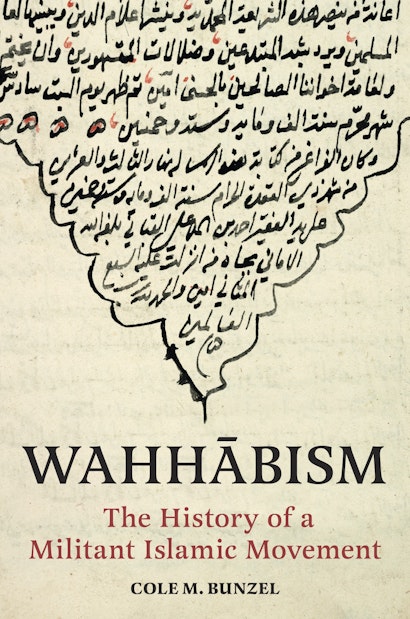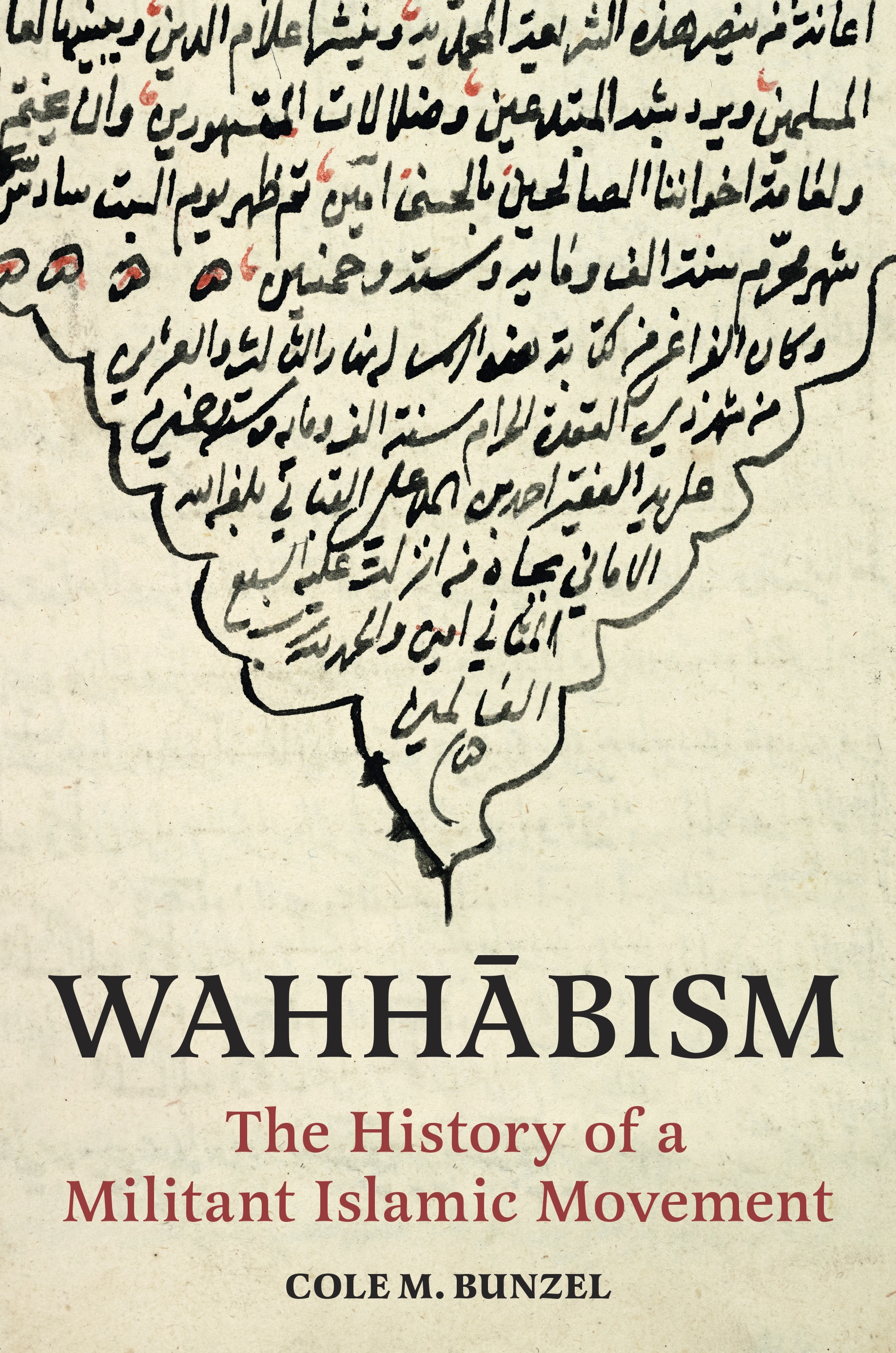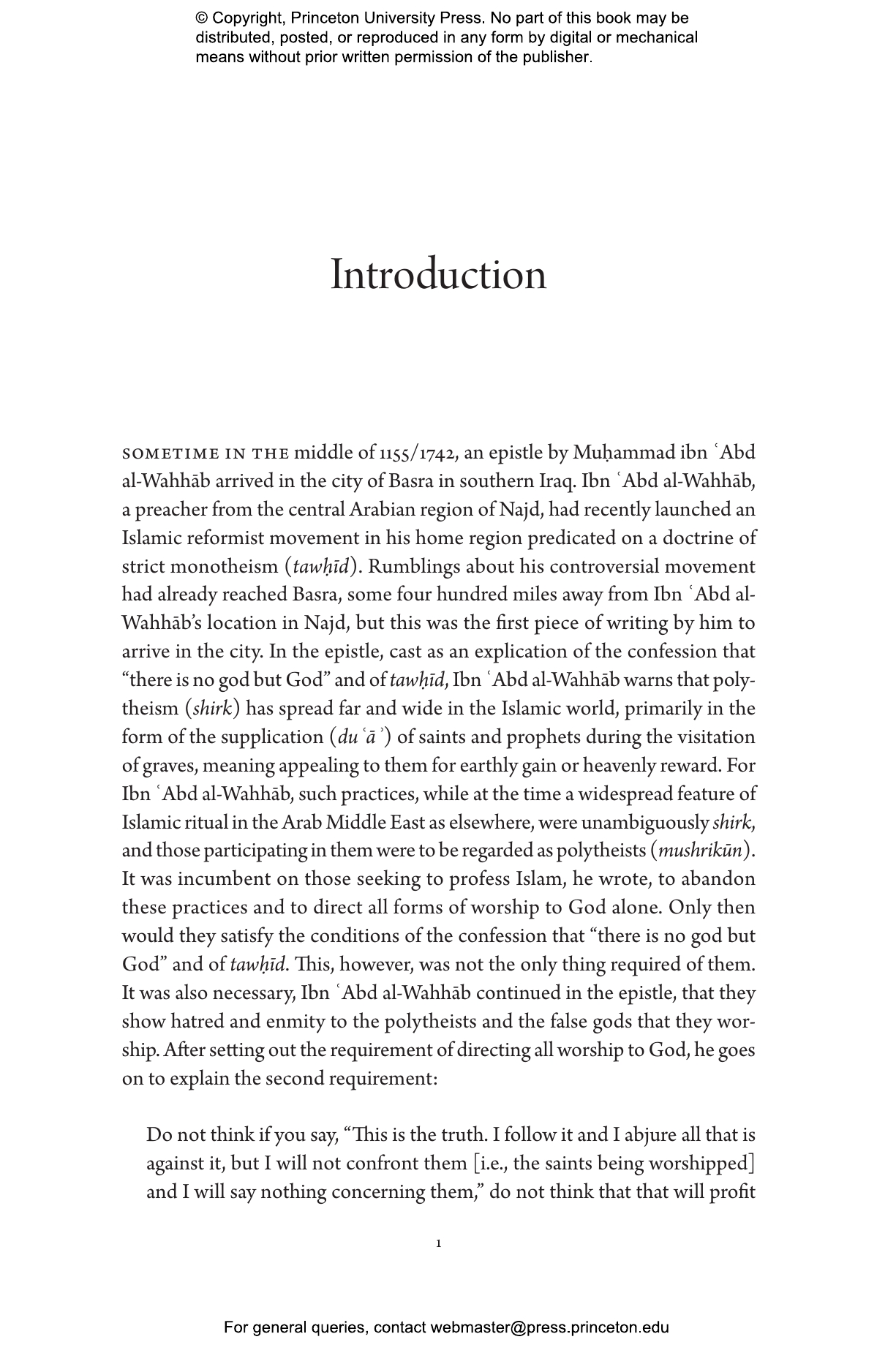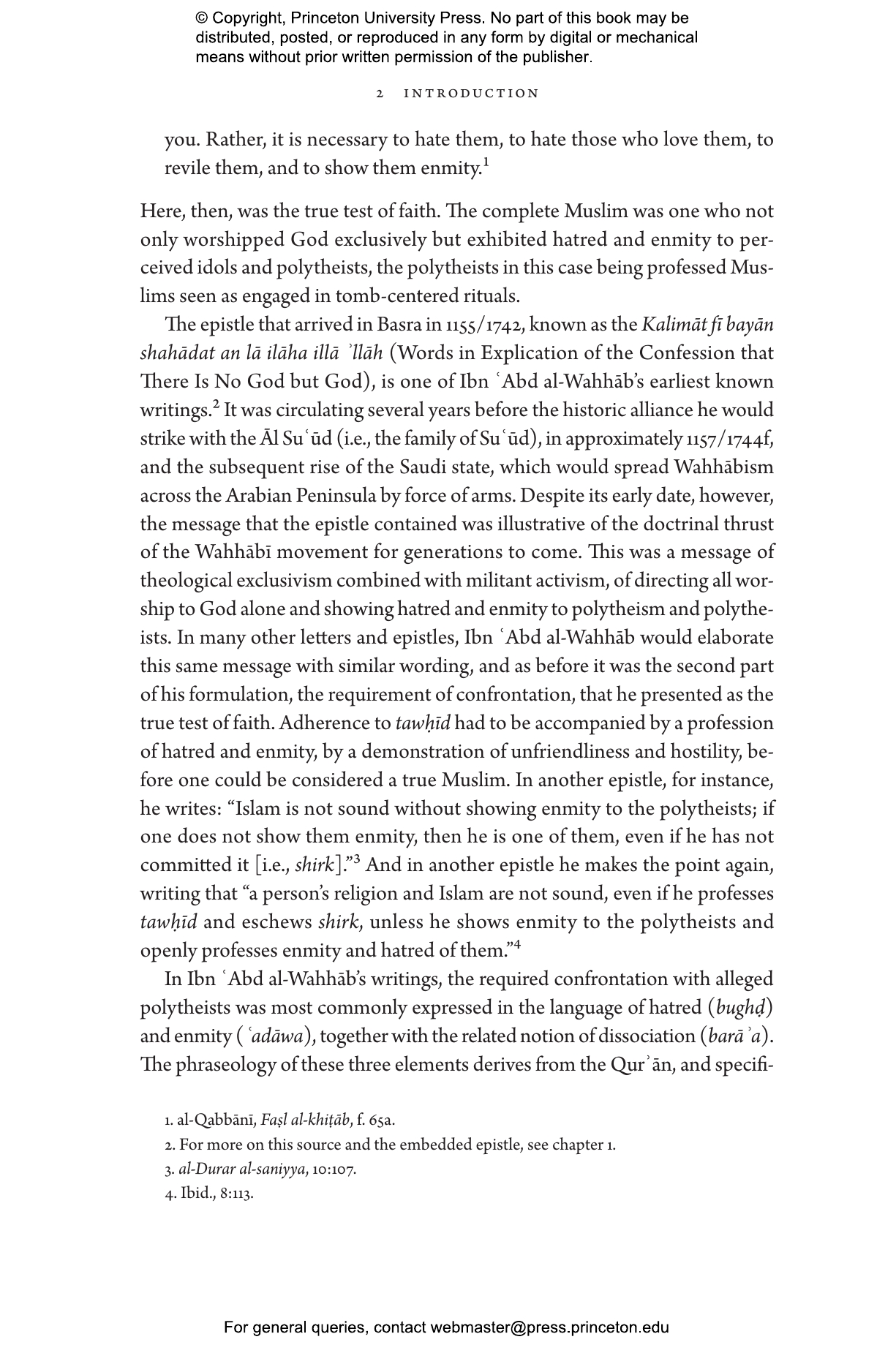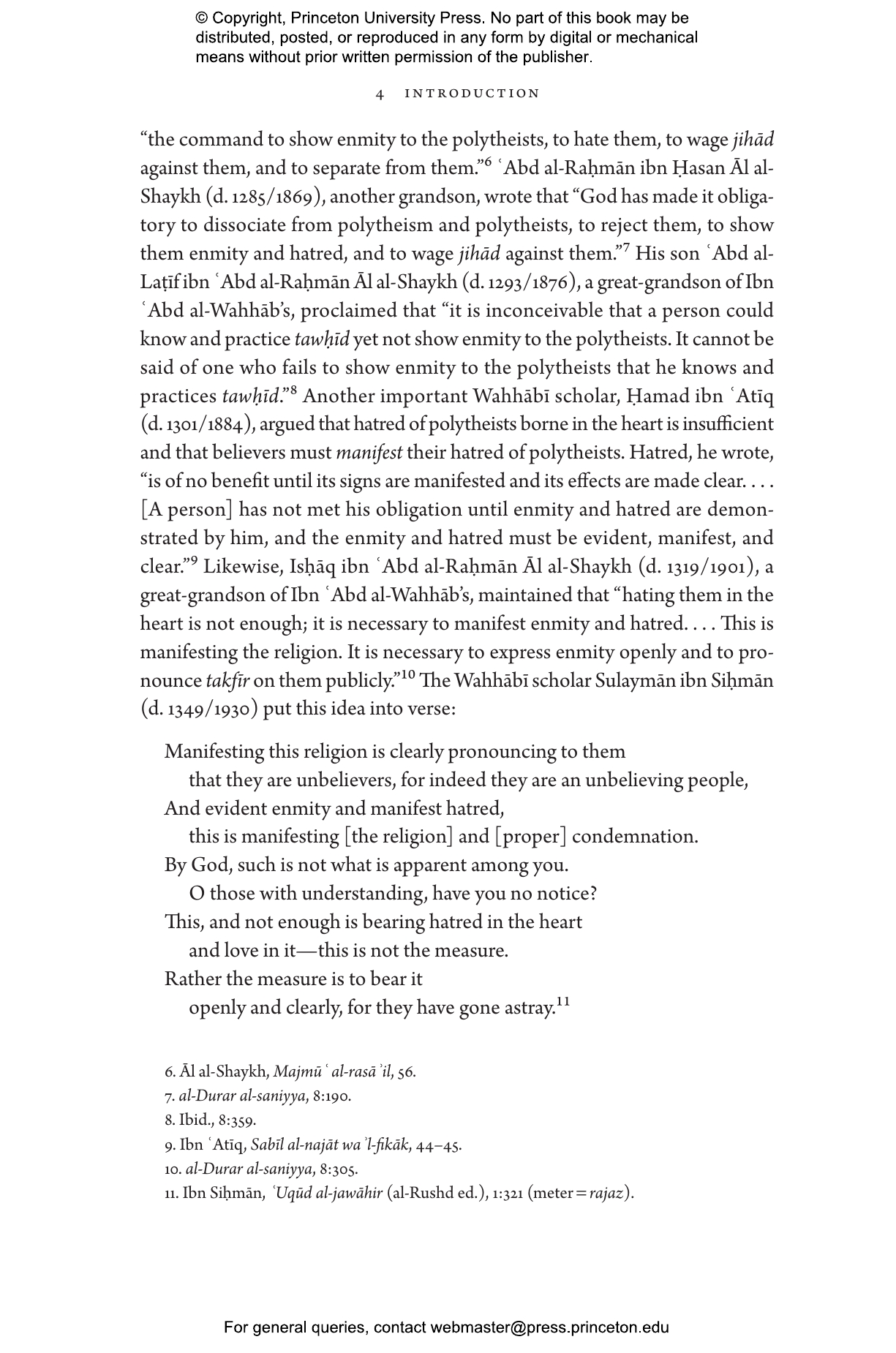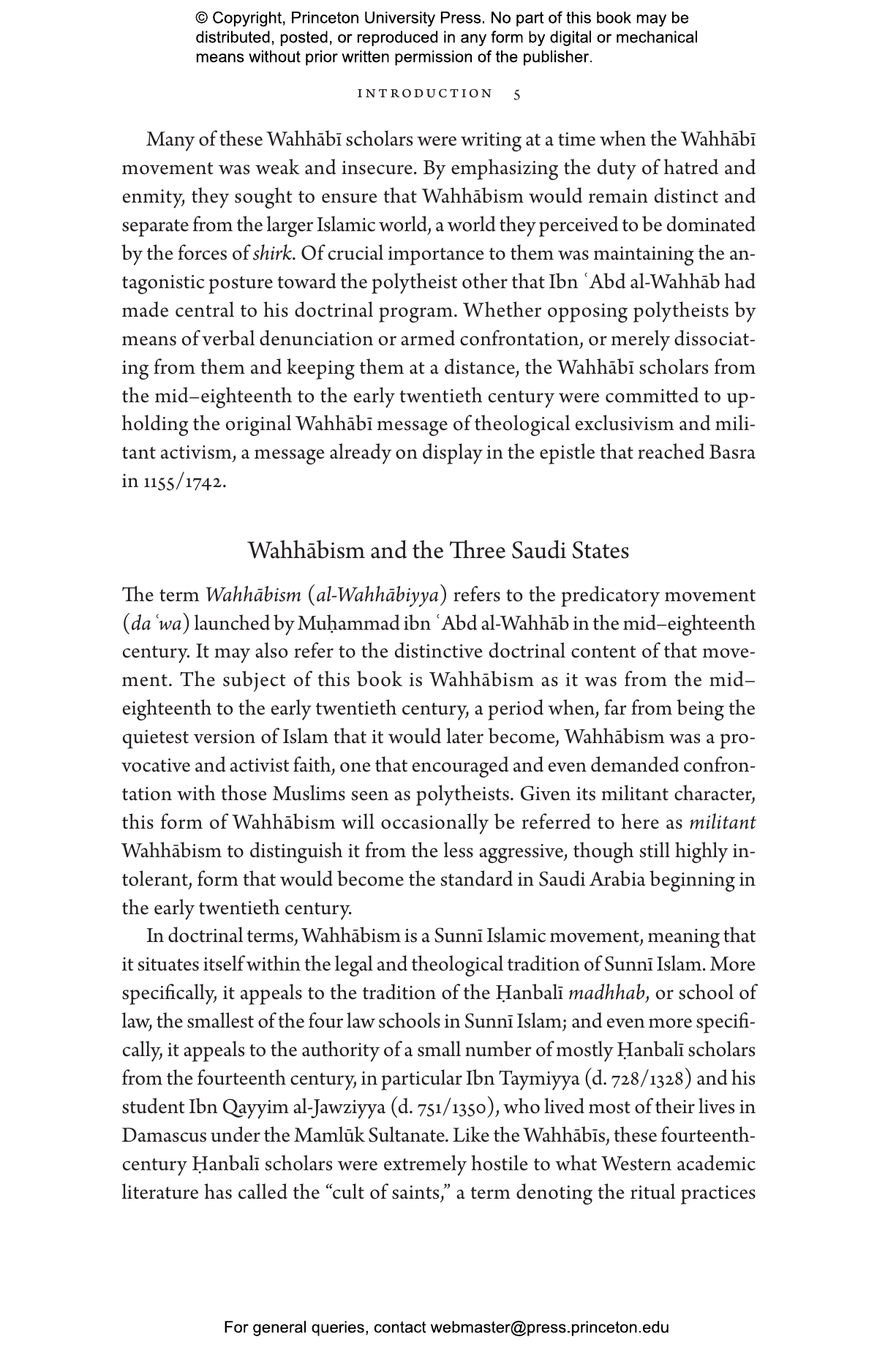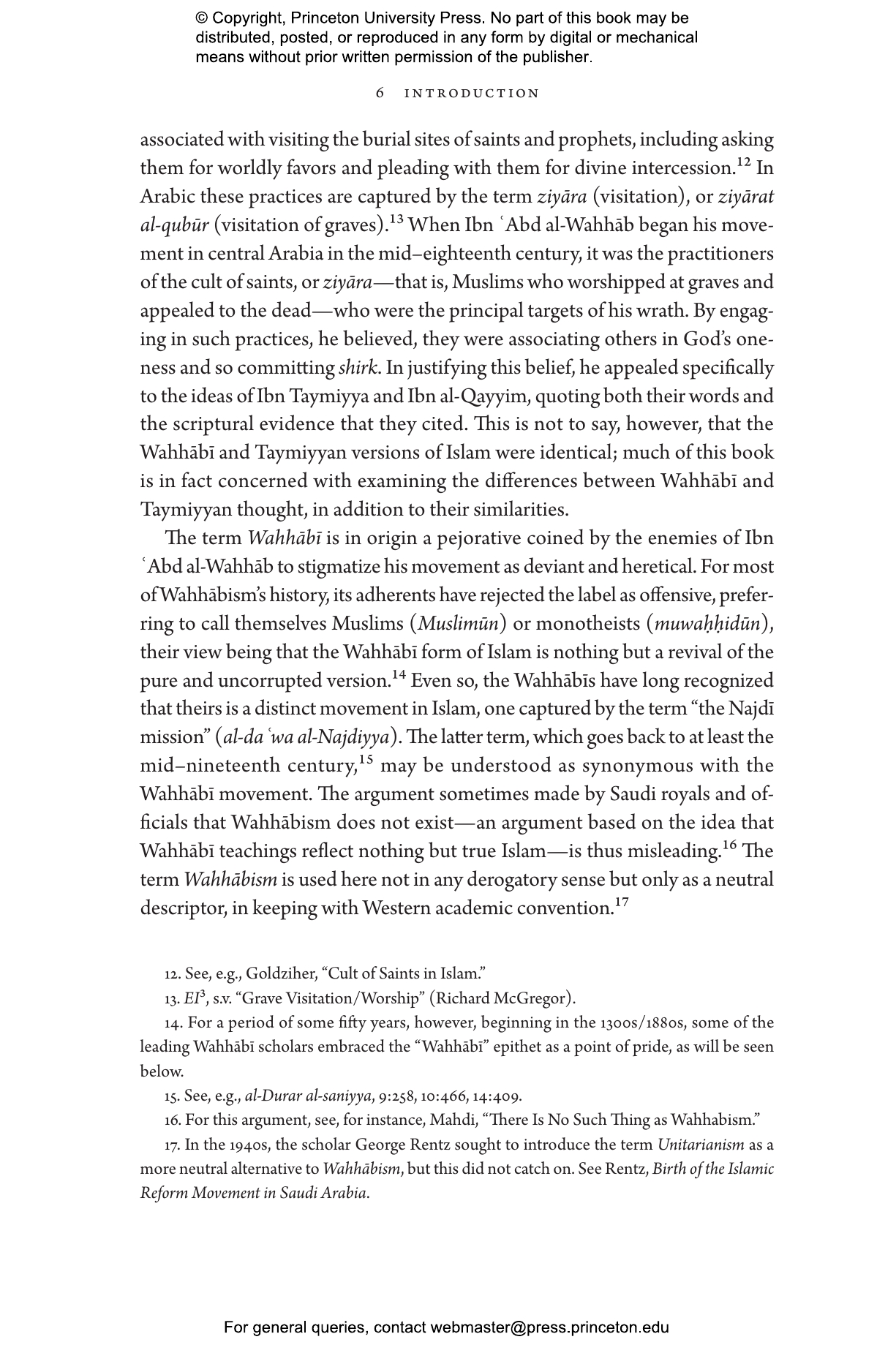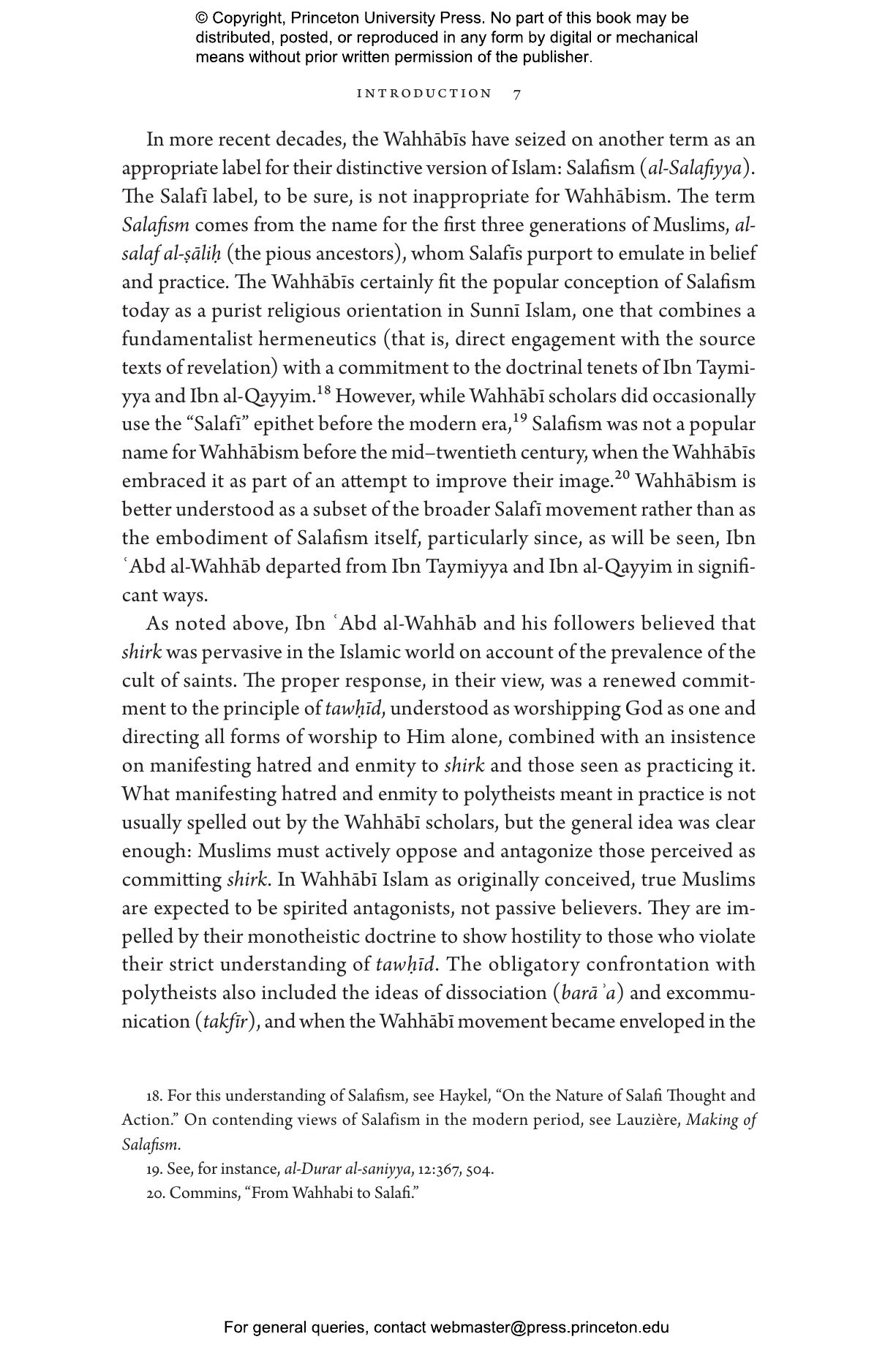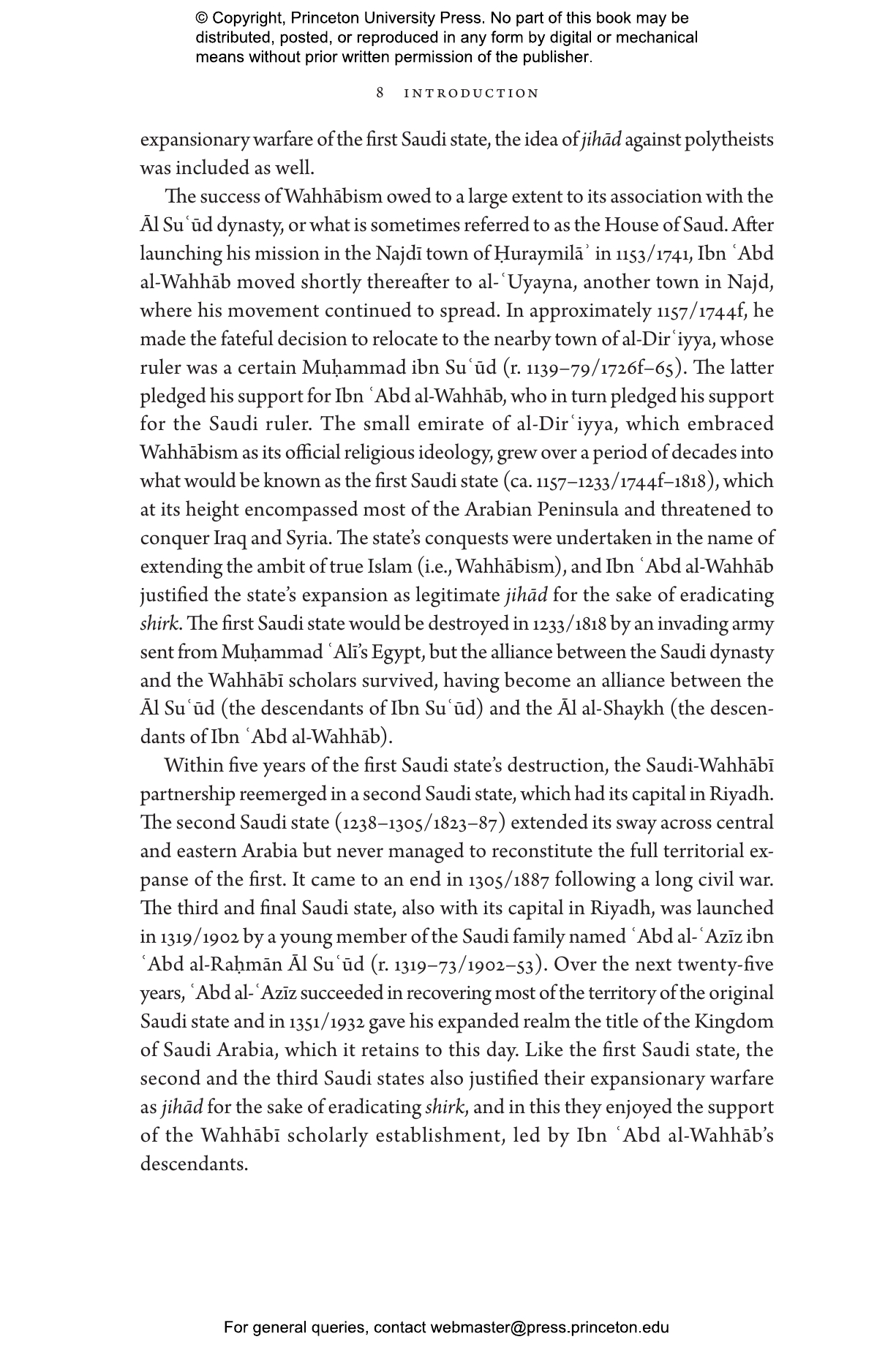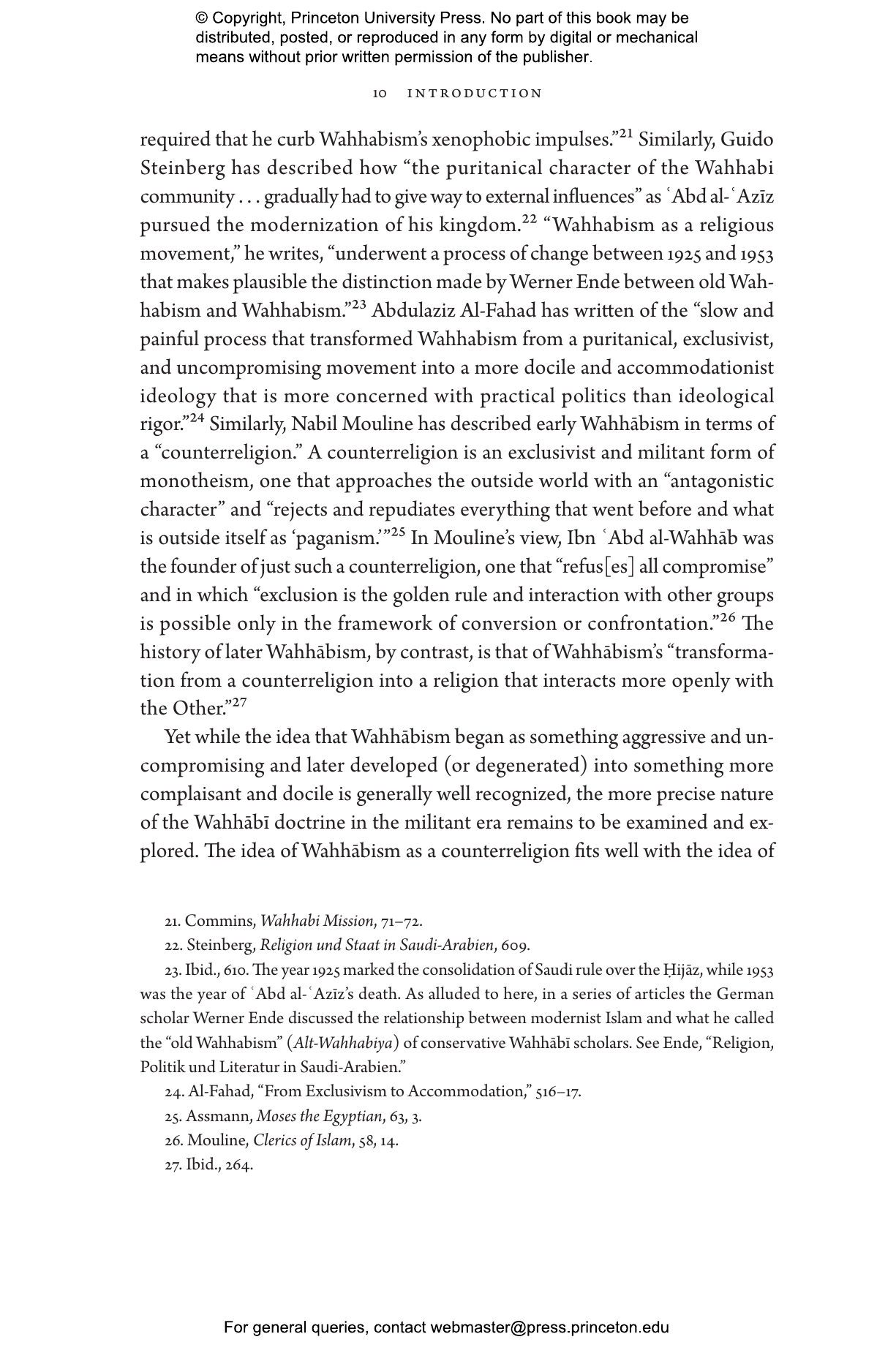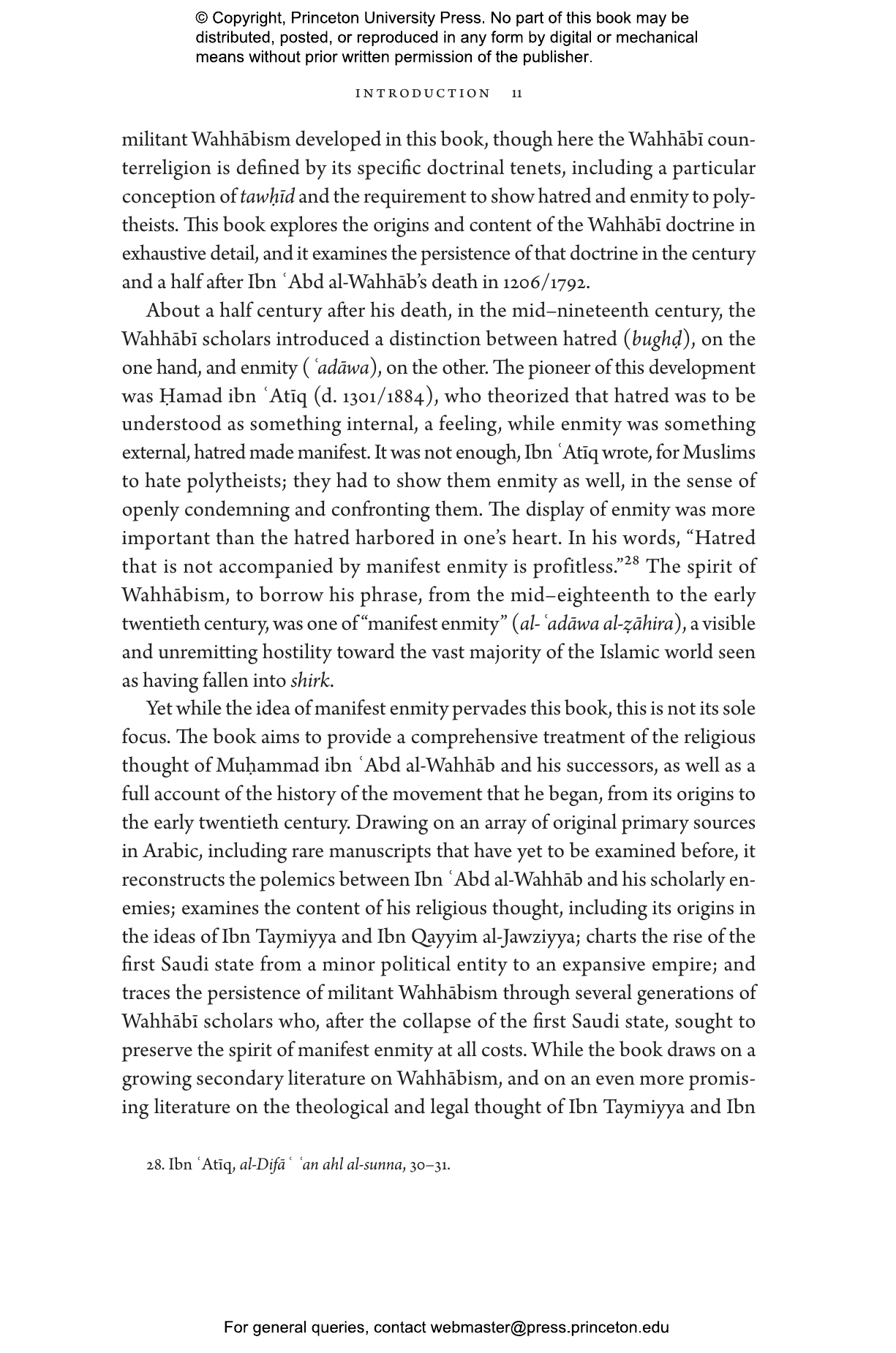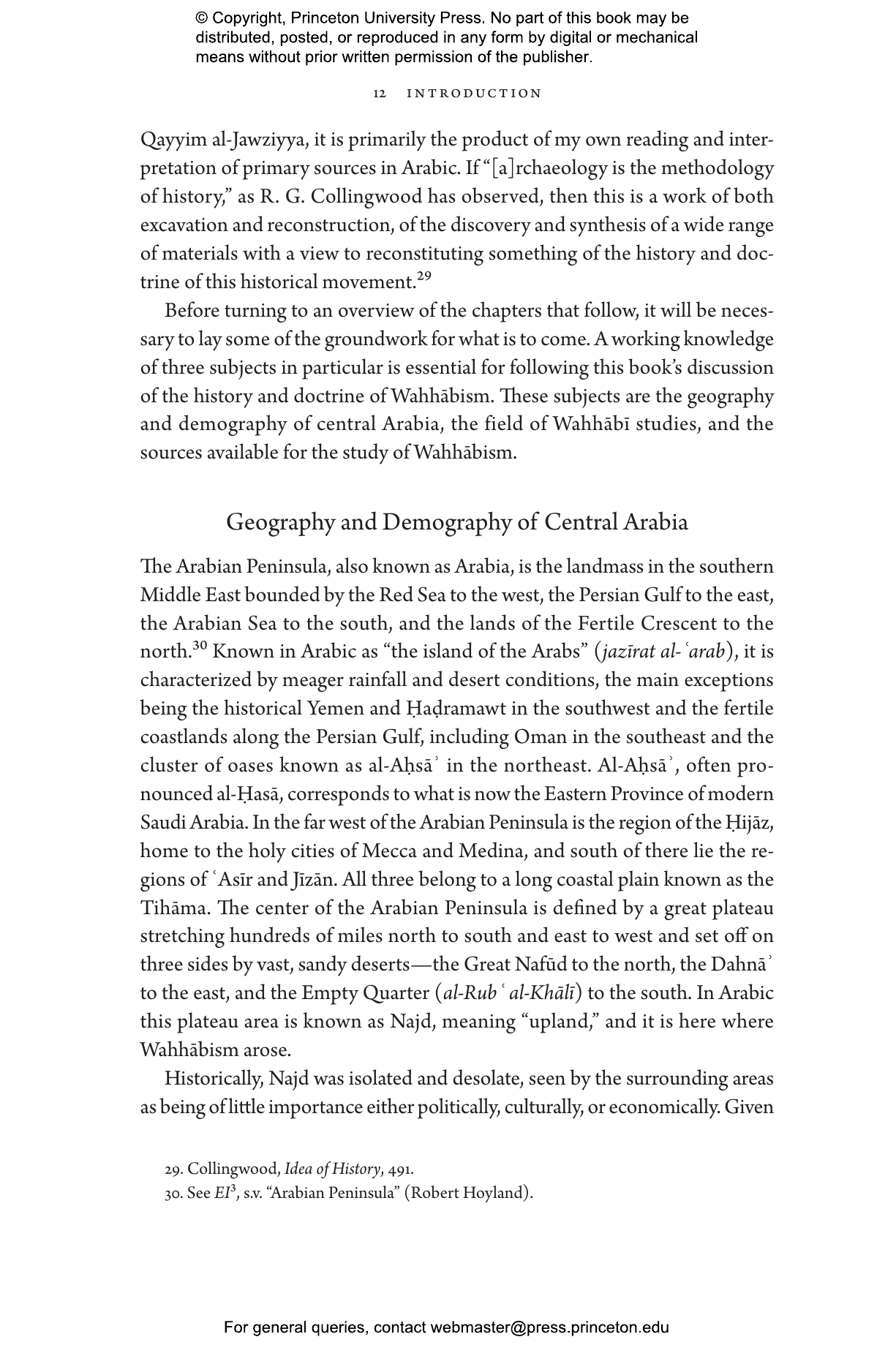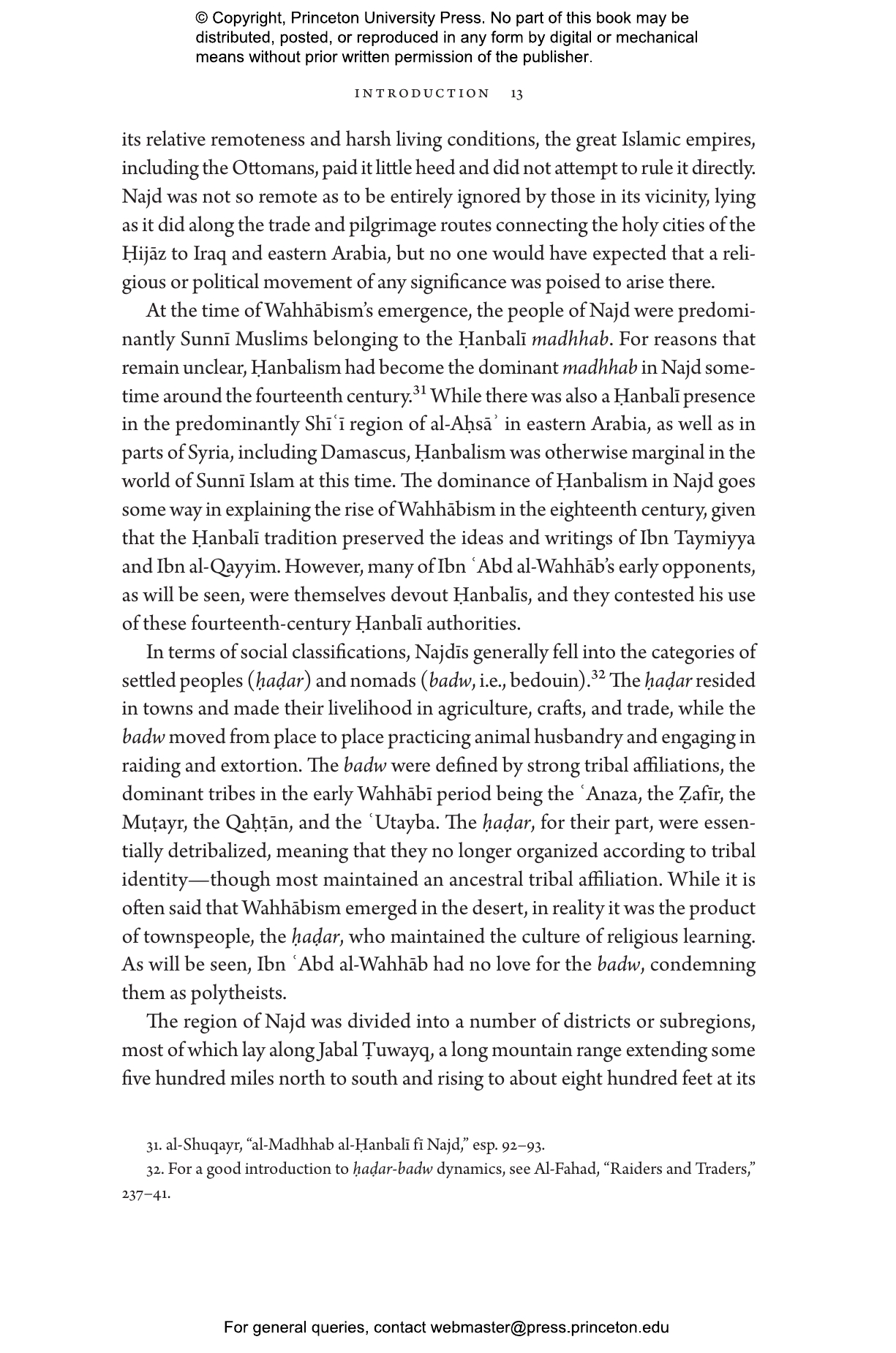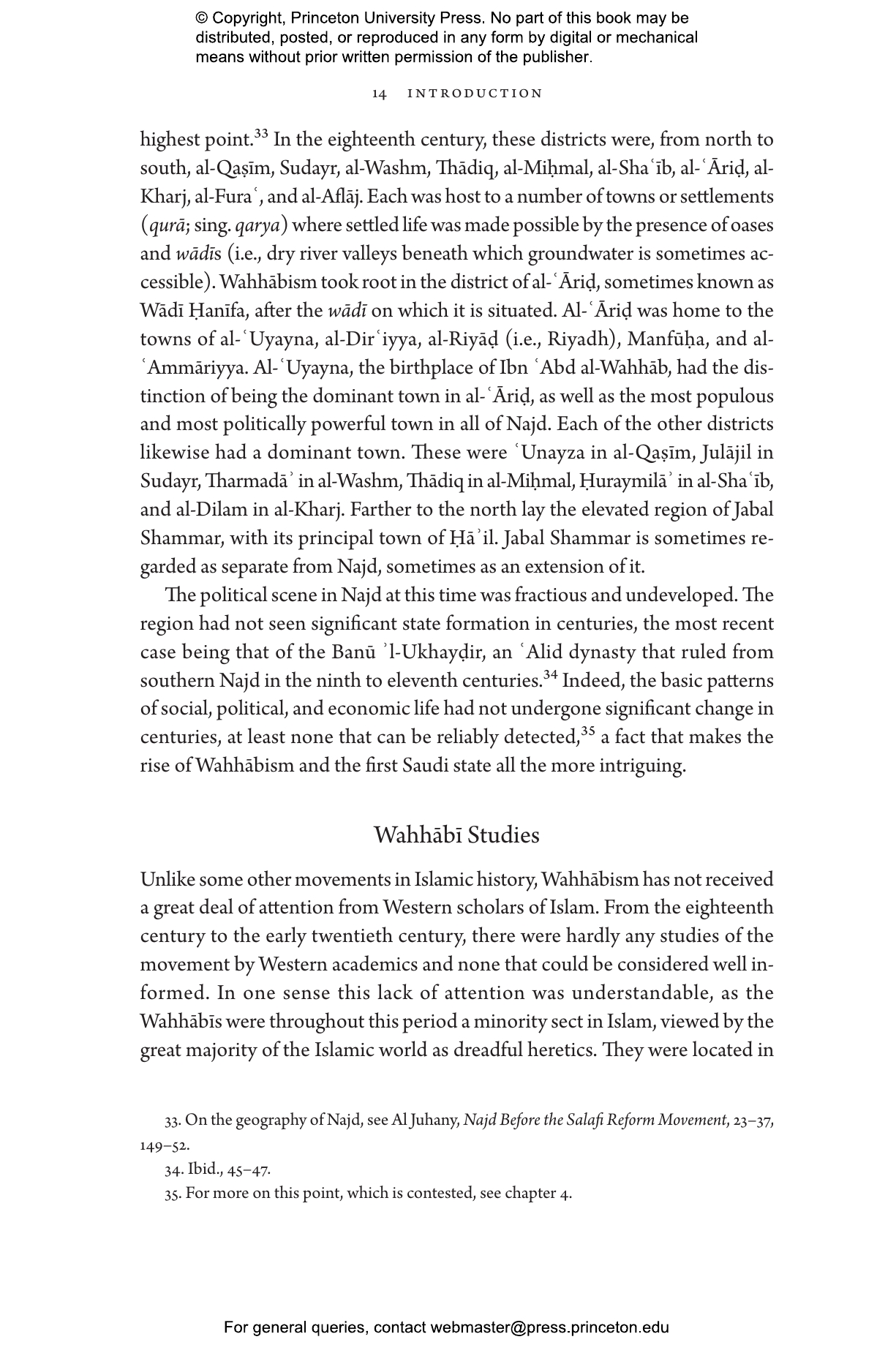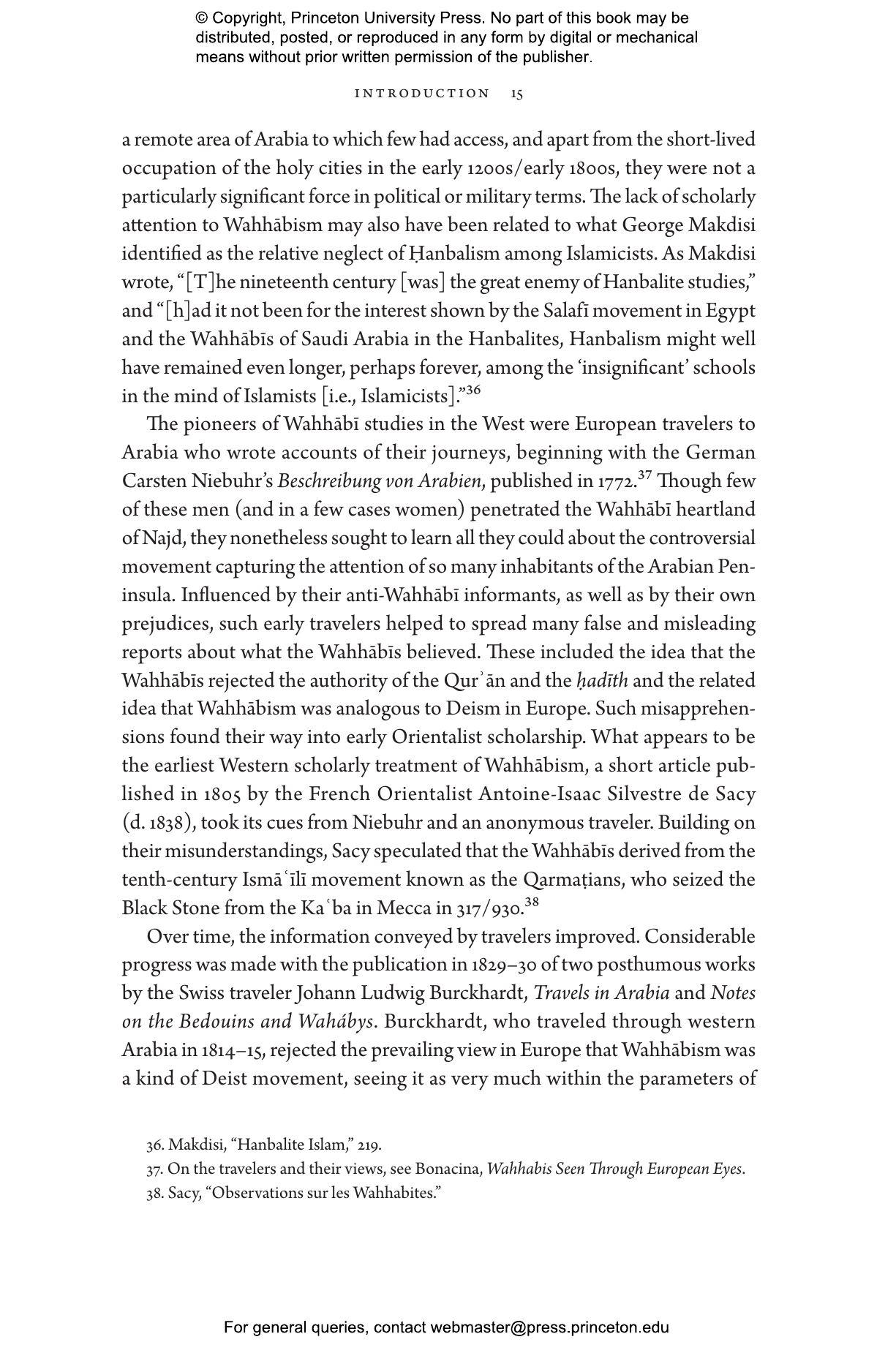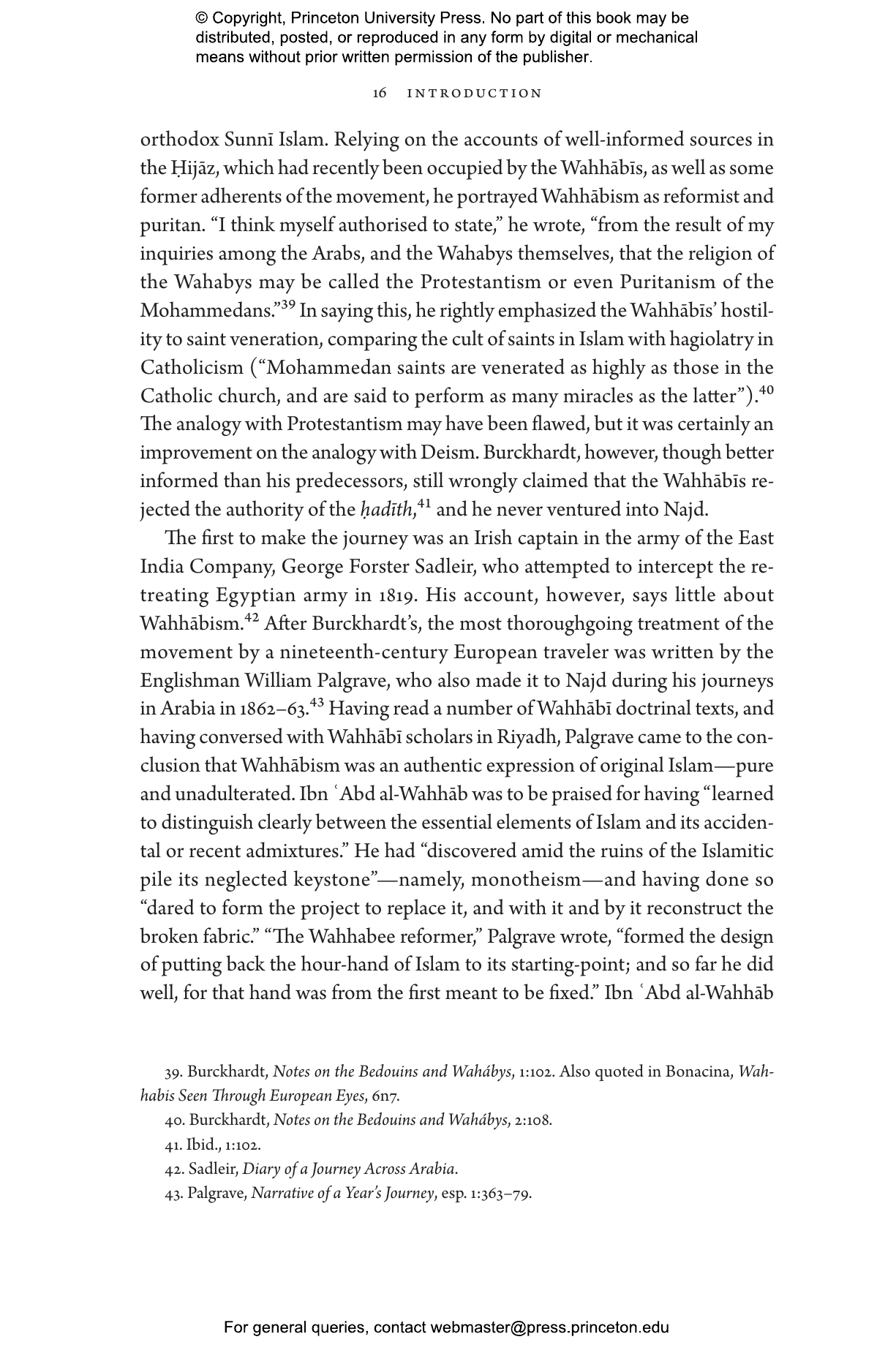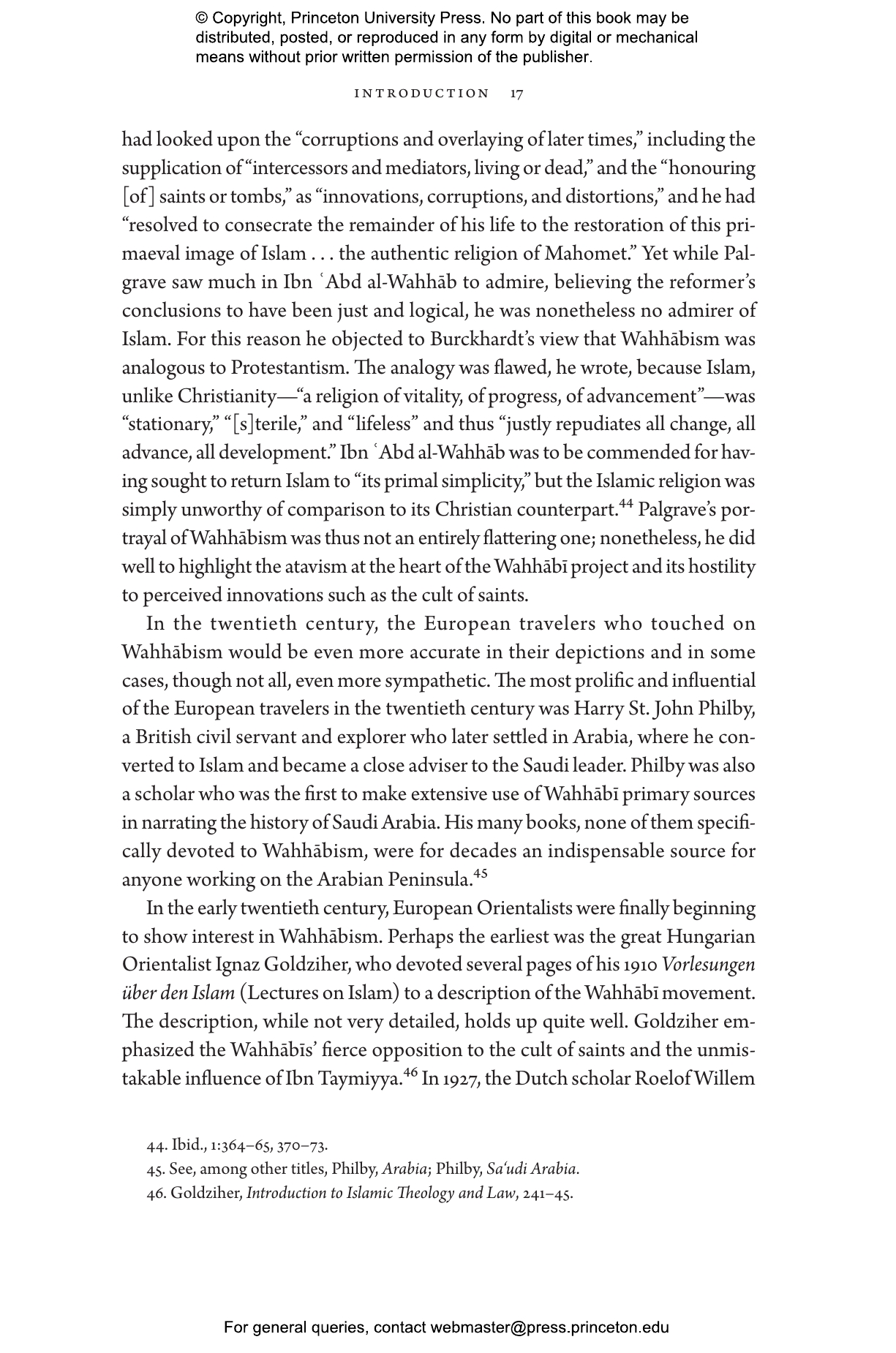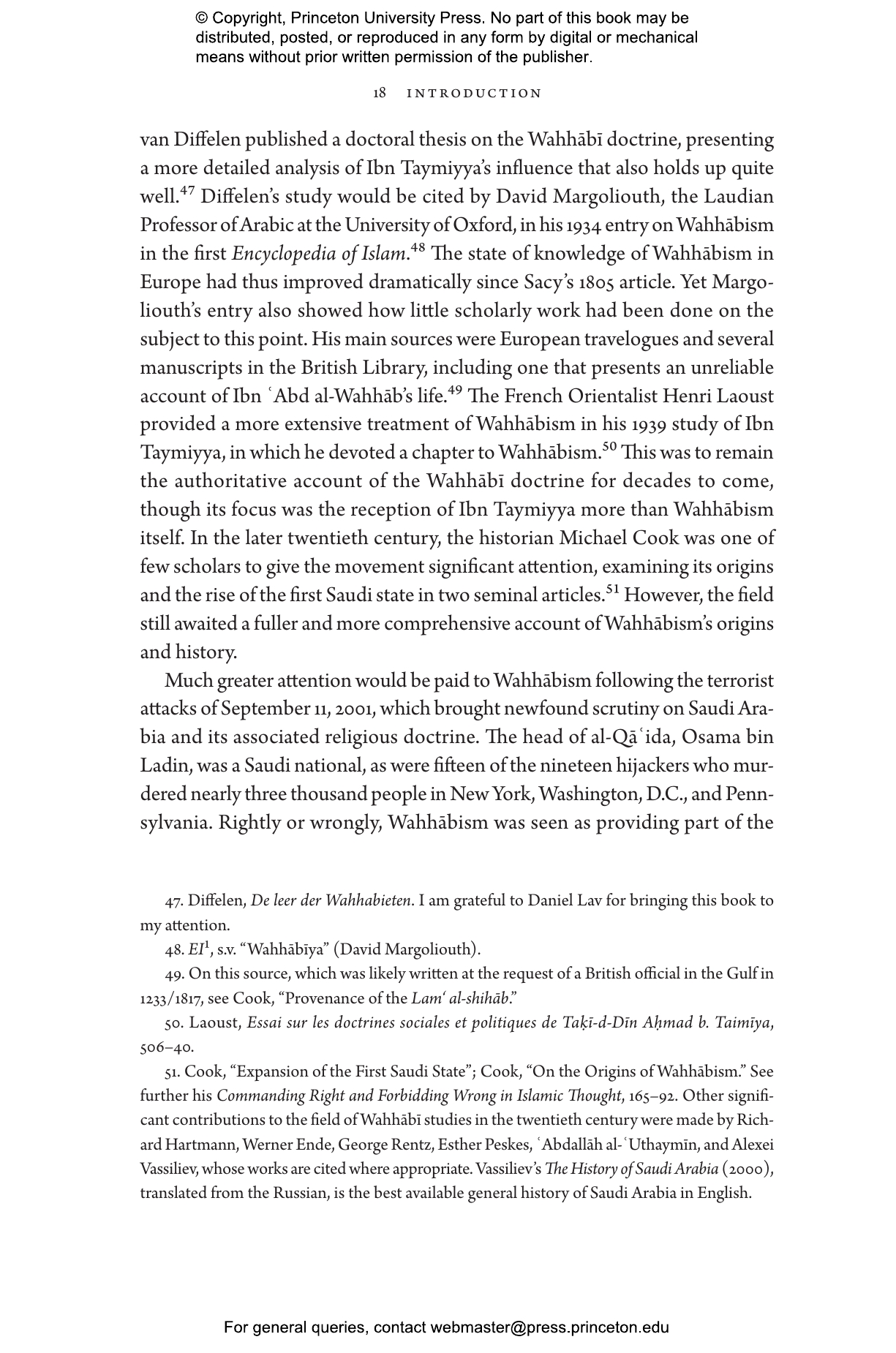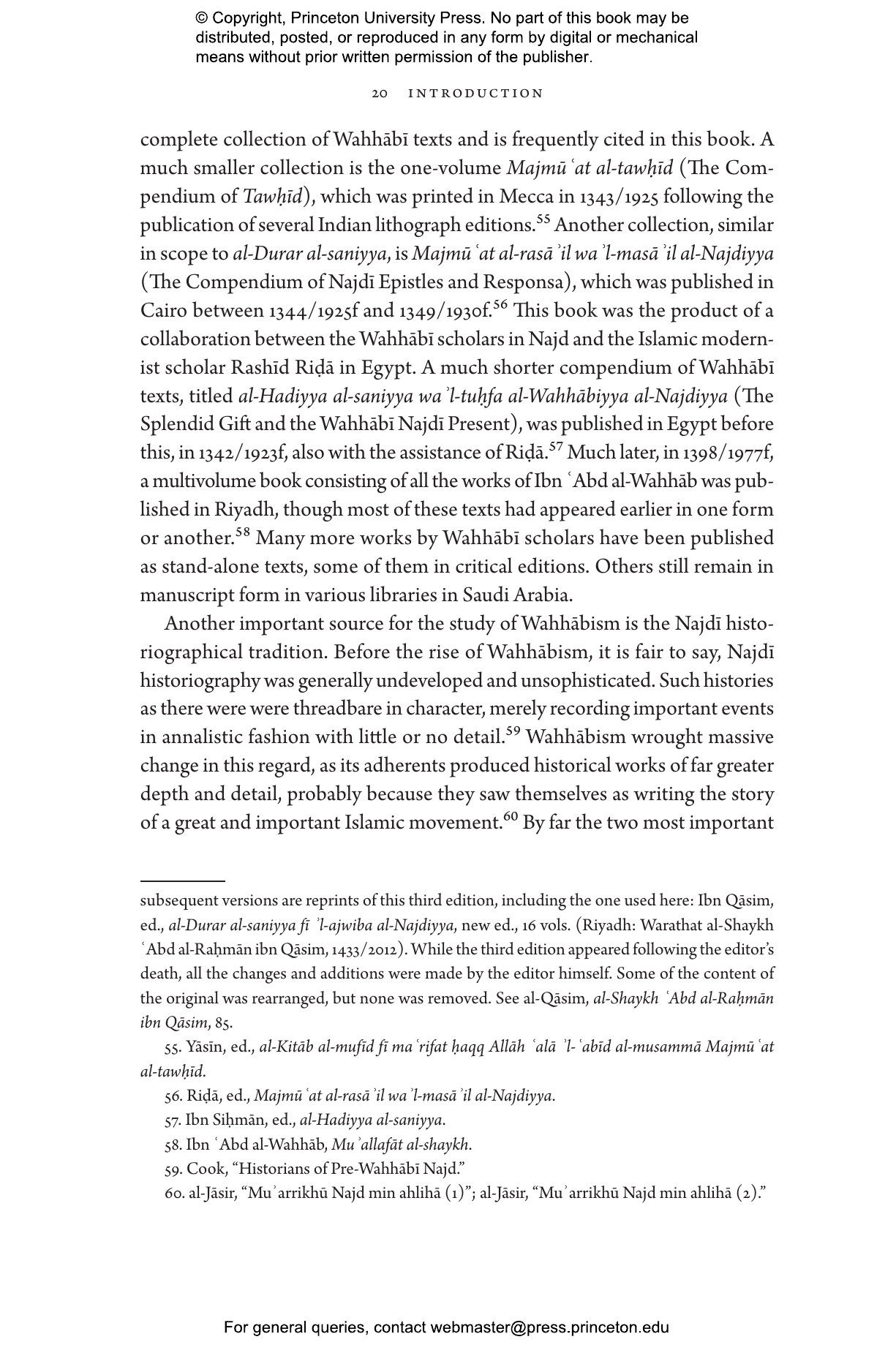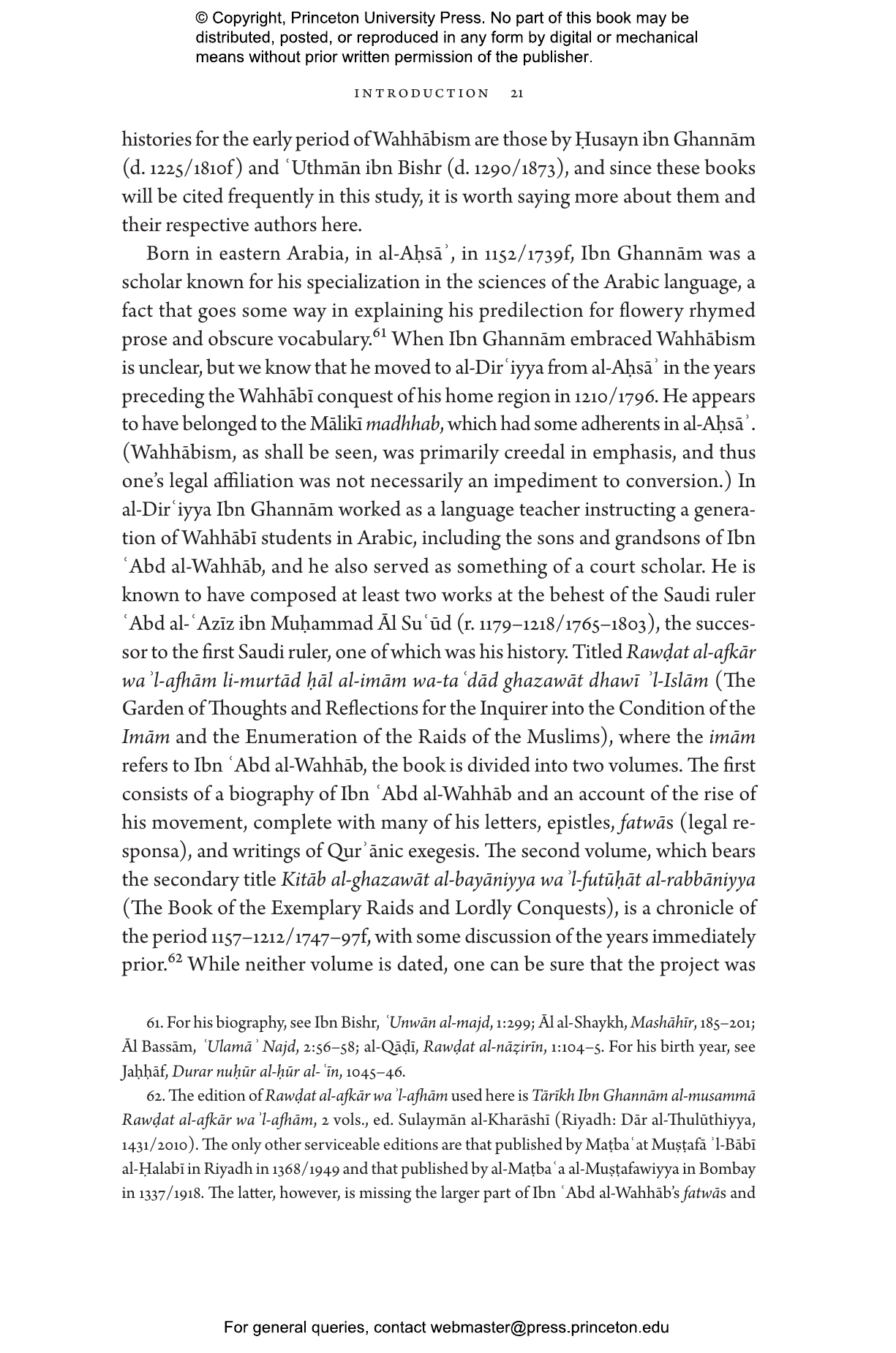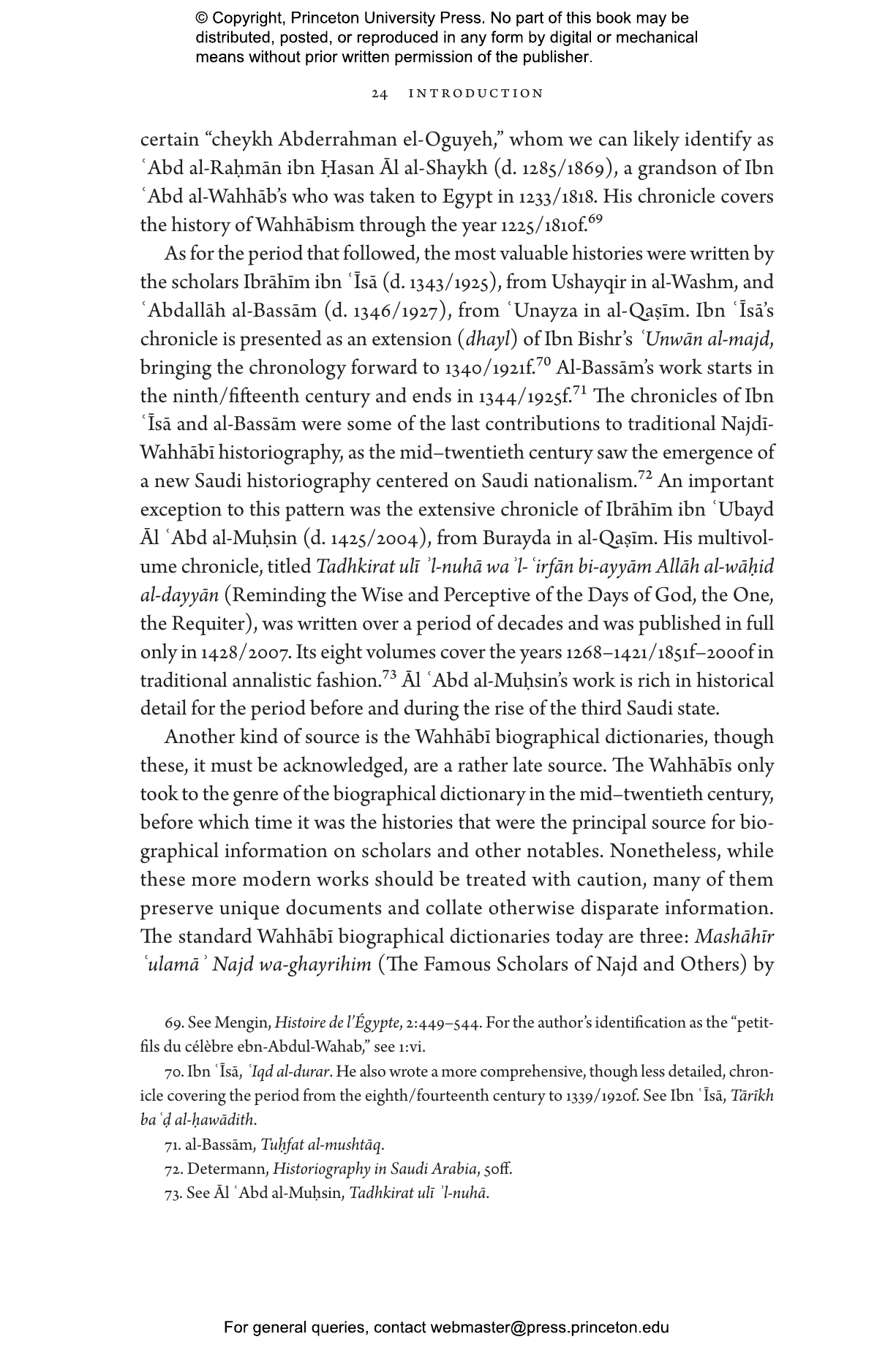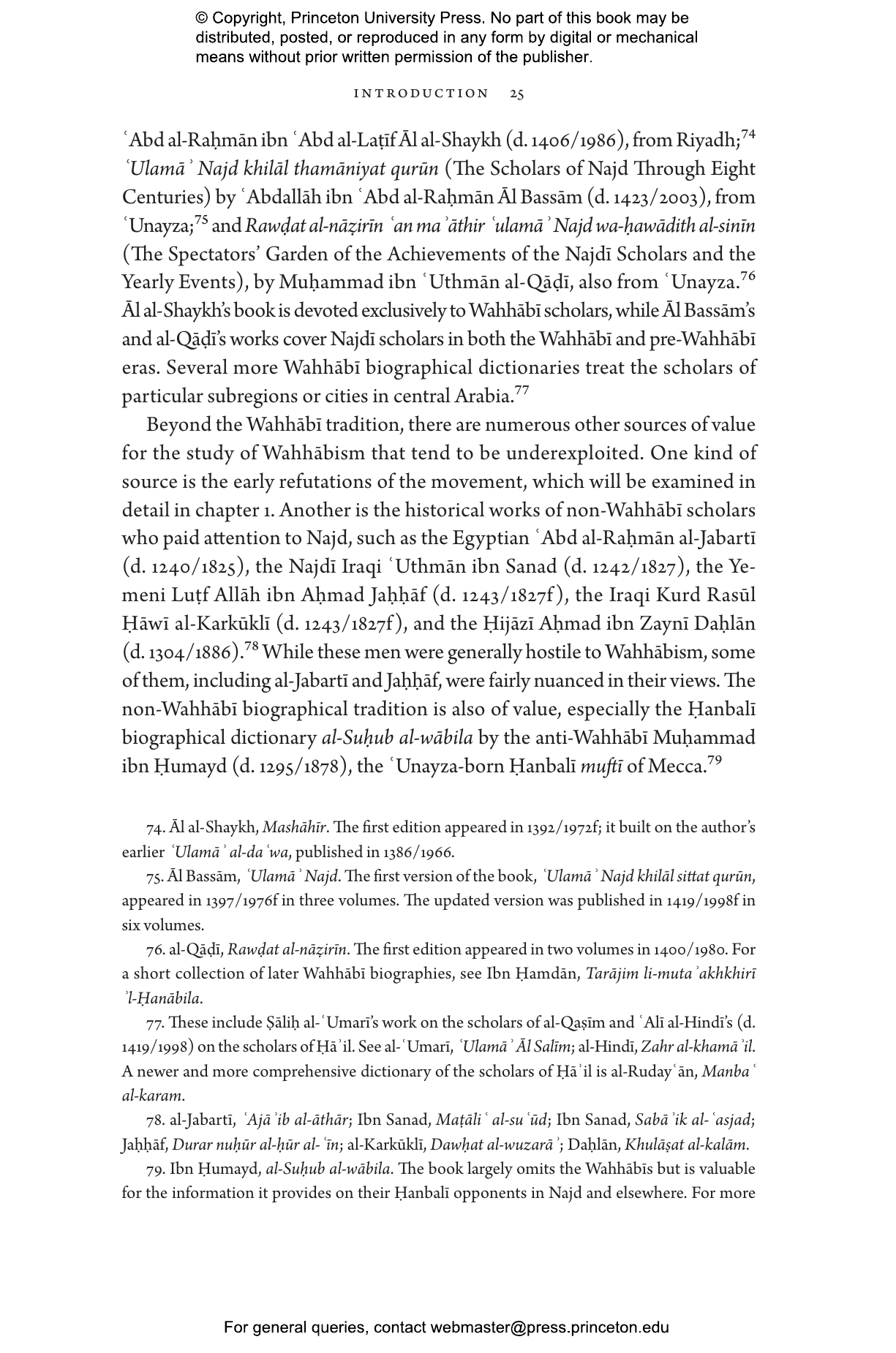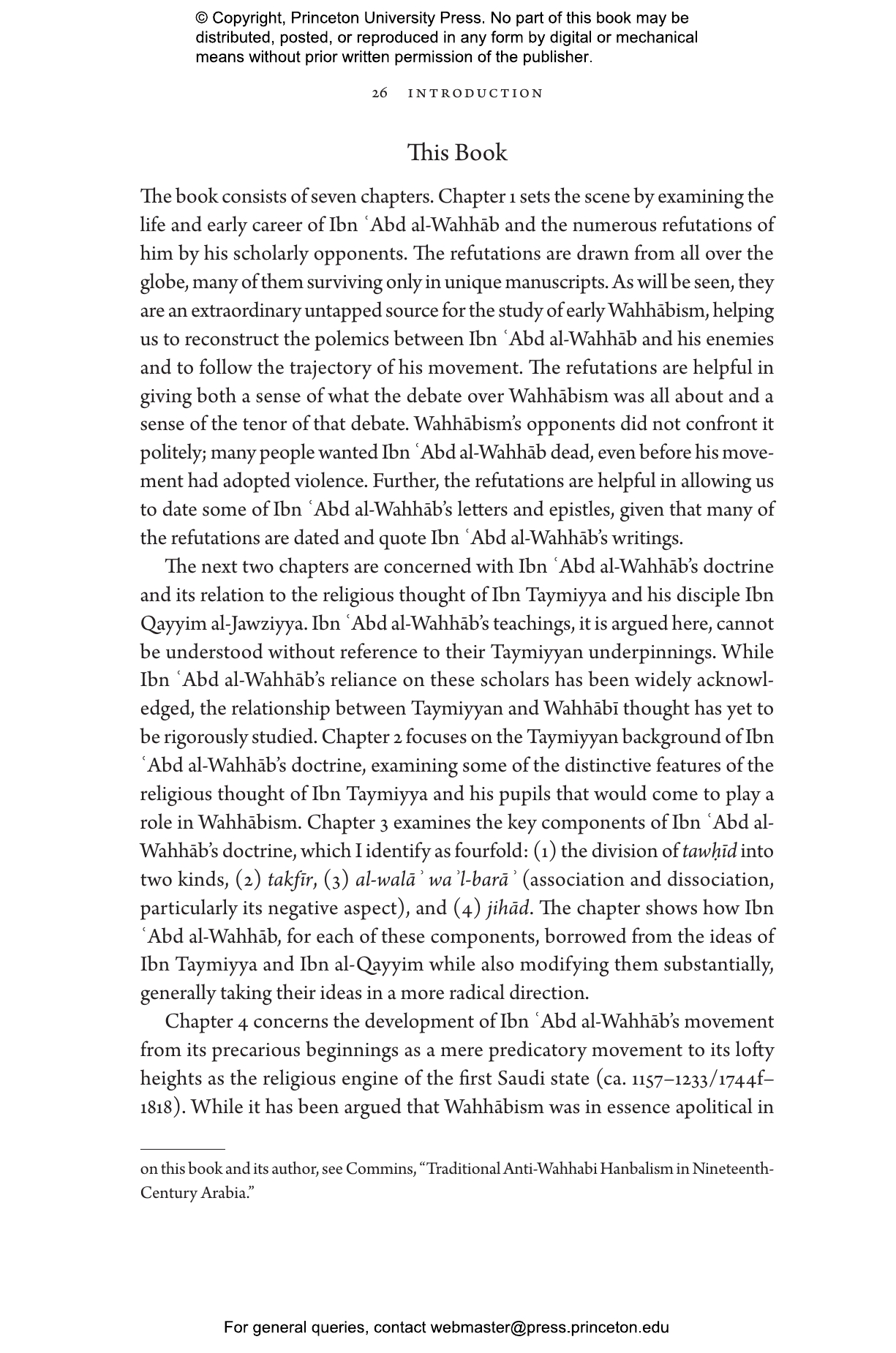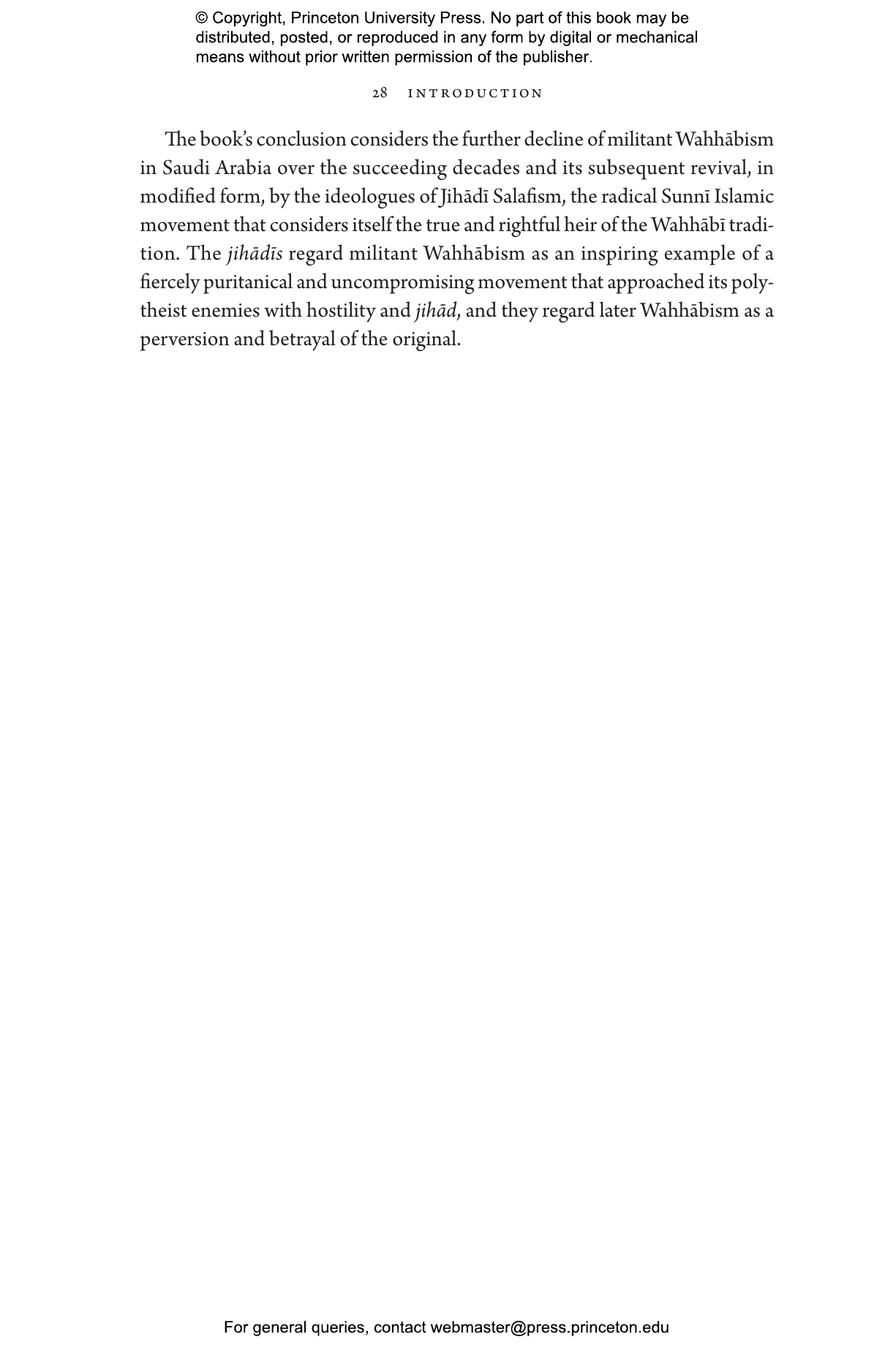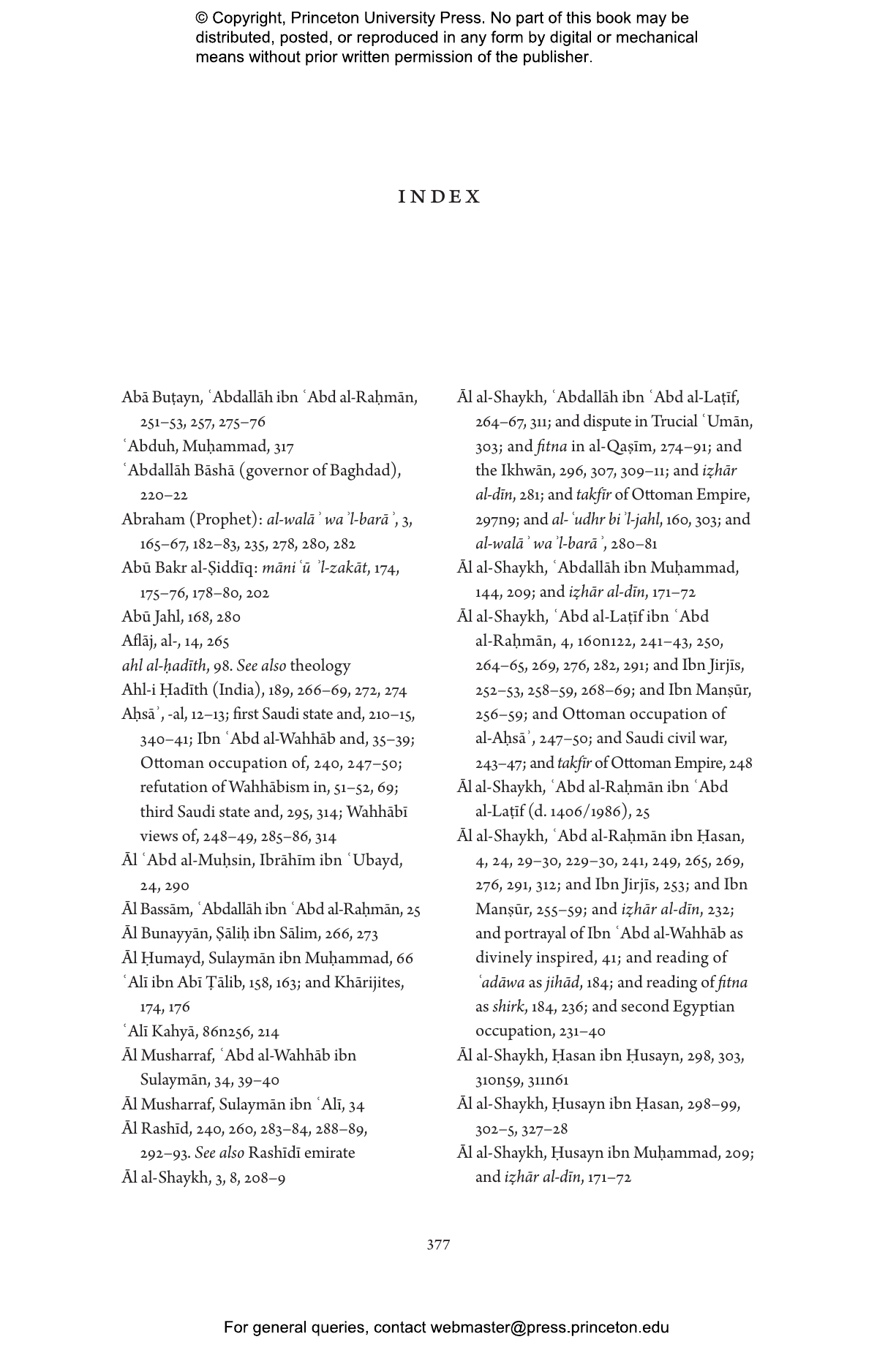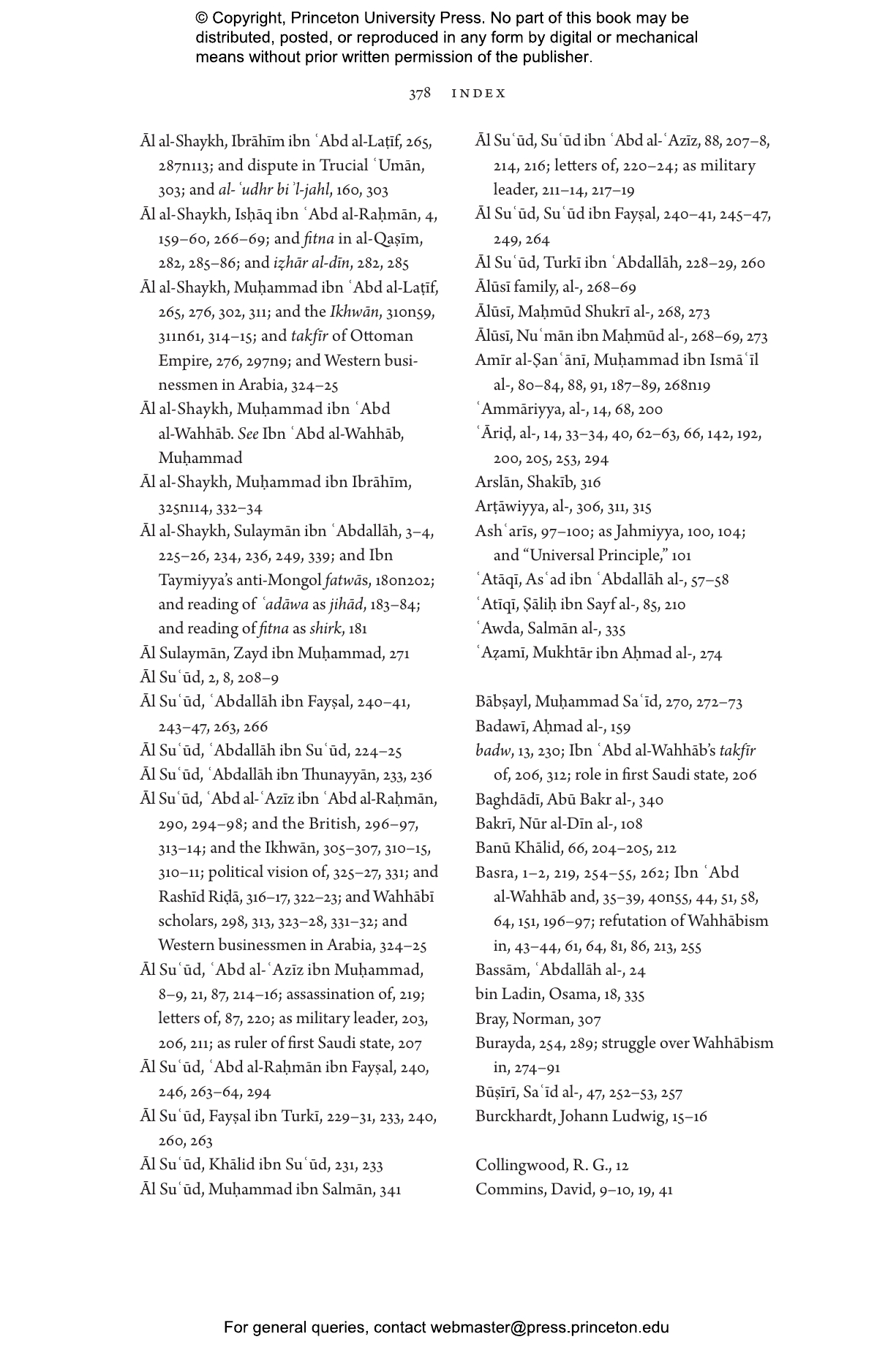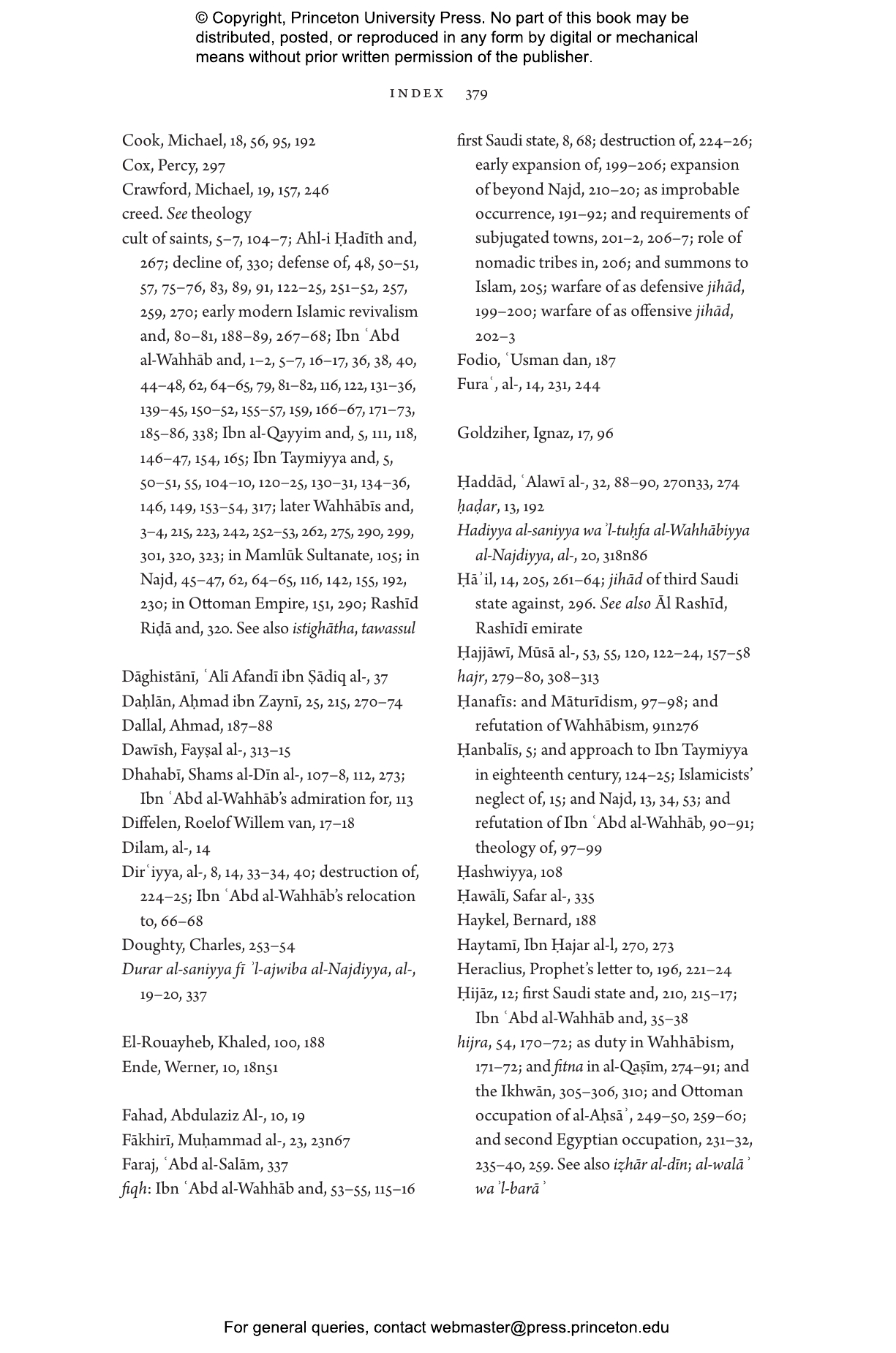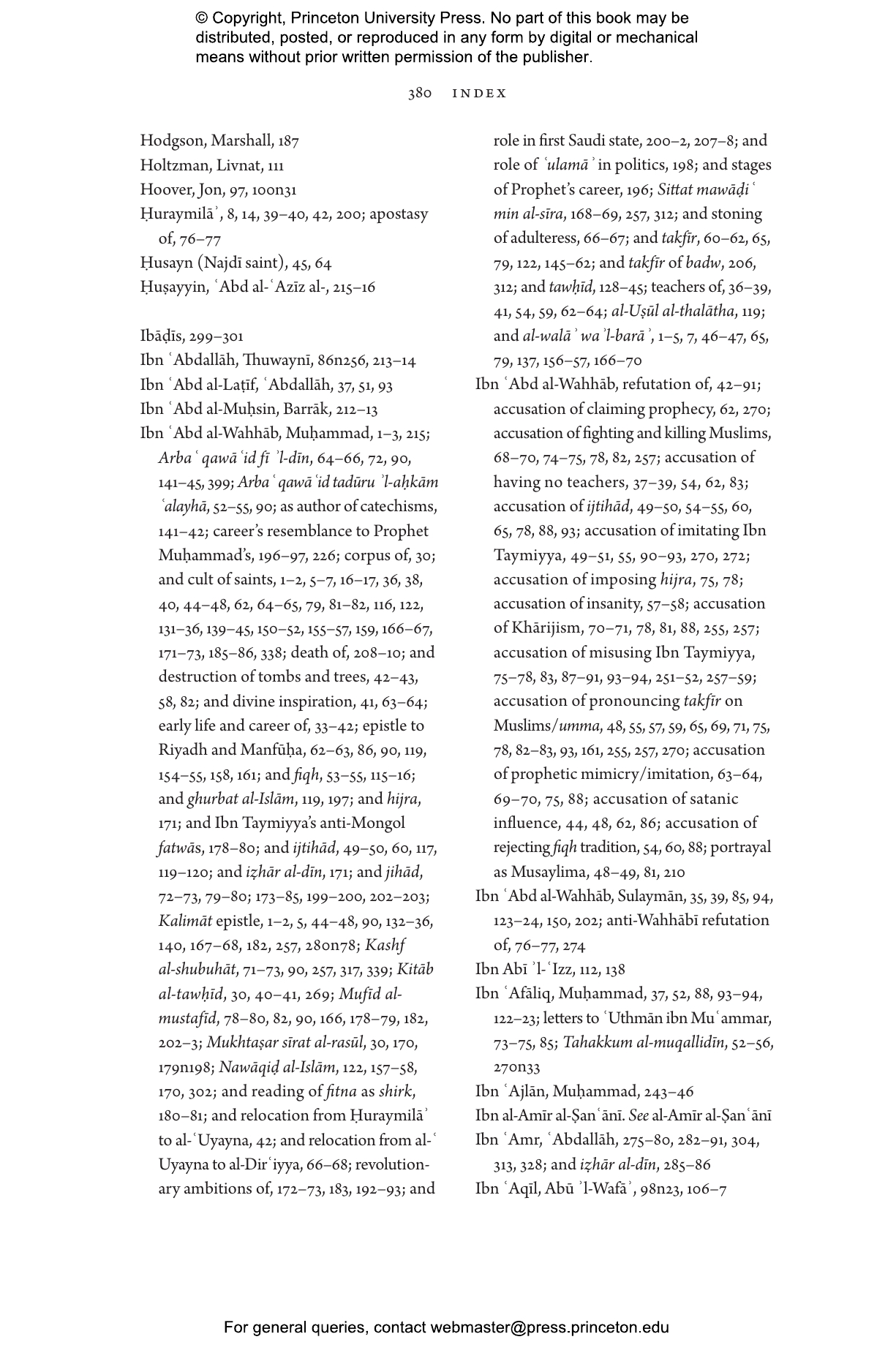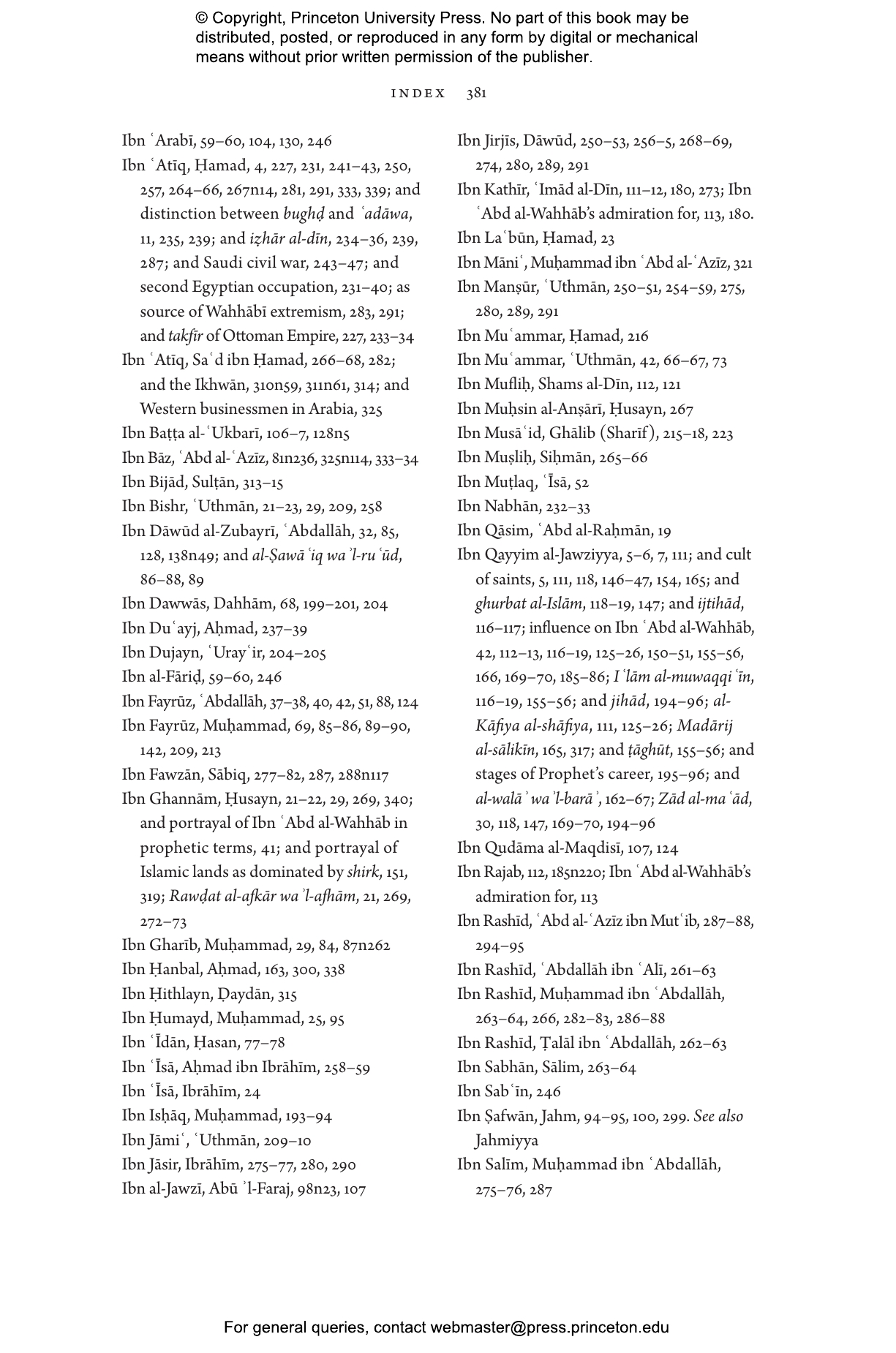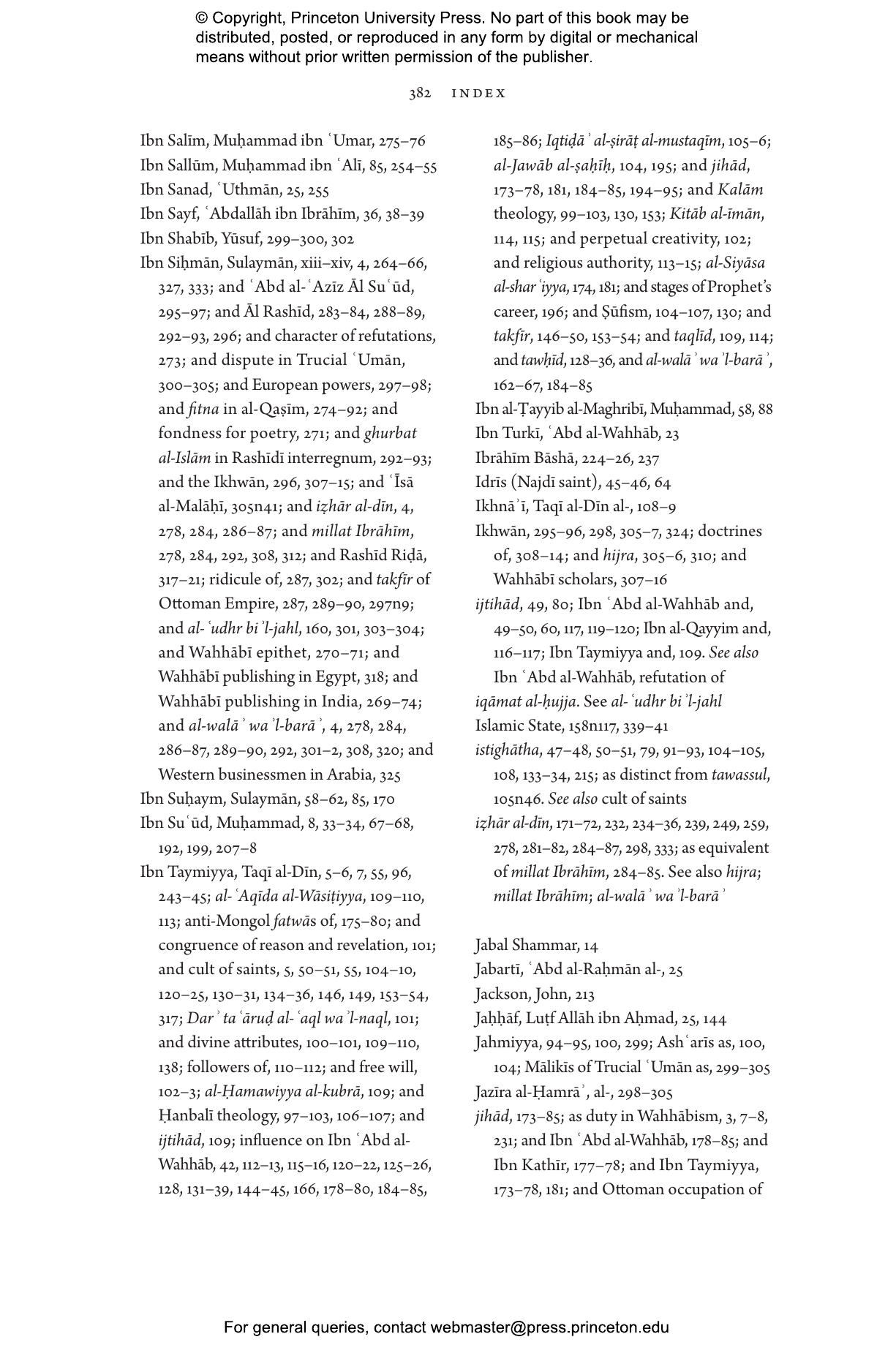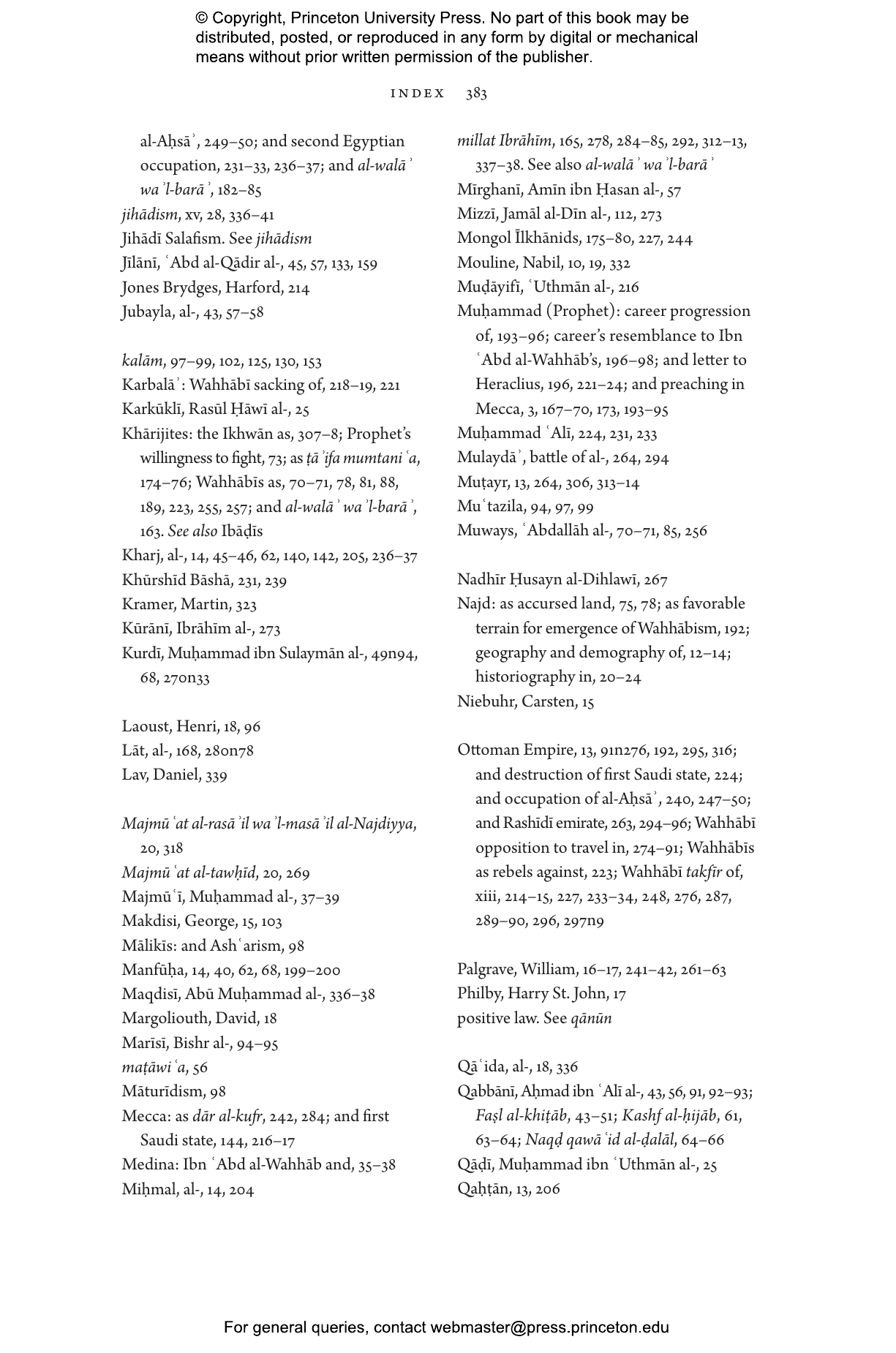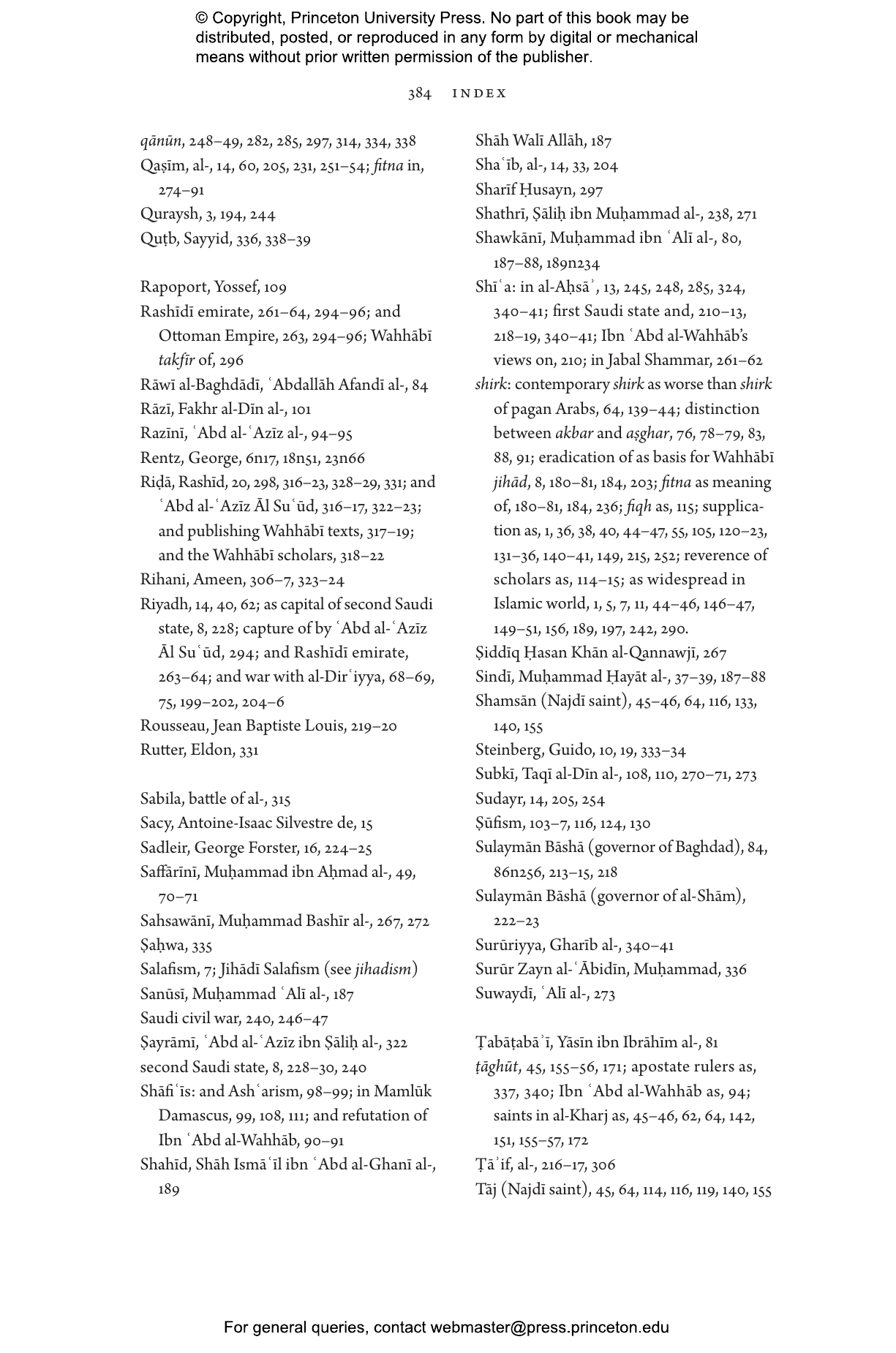In the mid-eighteenth century, a controversial Islamic movement arose in the central Arabian region of Najd that forever changed the political landscape of the Arabian Peninsula and the history of Islamic thought. Its founder, Muḥammad ibn ʿAbd al-Wahhāb, taught that most professed Muslims were polytheists due to their veneration of Islamic saints at tombs and gravesites. He preached that true Muslims, those who worship God alone, must show hatred and enmity toward these polytheists and fight them in jihād. Cole Bunzel tells the story of Wahhābism from its emergence in the 1740s to its taming and coopting by the modern Saudi state in the 1920s, and shows how its legacy endures in the ideologies of al-Qāʿida and the Islamic State.
Drawing on a wealth of primary source materials, Bunzel traces the origins of Wahhābī doctrine to the religious thought of medieval theologian Ibn Taymiyya and examines its development through several generations of Wahhābī scholars. While widely seen as heretical and schismatic, the movement nonetheless flourished in central Arabia, spreading across the peninsula under the political authority of the Āl Suʿūd dynasty until the invading Egyptian army crushed it in 1818. The militant Wahhābī ethos, however, persisted well into the early twentieth century, when the Saudi kingdom used Wahhābism to bolster its legitimacy.
This incisive history is the definitive account of a militant Islamic movement founded on enmity toward non-Wahhābī Muslims and that is still with us today in the violent doctrines of Sunni jihādīs.
Cole M. Bunzel is a Hoover Fellow at the Hoover Institution at Stanford University.
"Bunzel’s scholarship is groundbreaking. . . . It is essential that it reaches as wide an audience as possible."—John McHugo, History Today
"The amount of primary sources and manuscripts referenced in Cole Bunzel's new book is dizzying in the best way possible. The new standard for literature on Wahhabism! . . . A must read book."—Aaron Y. Zelin, Brandeis University
"The single most significant event in the publication history of the scholarship on Wahhābism—period. There’s no book that rivals it . . . in scope, erudition, and breadth. . . . It's one of these books that will set the agenda for future scholarship."—Omar Anchassi, Islamicate Book Reviews
"Remarkably detailed, robust, and cohesive. . . . This is a worthwhile read for anyone with an interest in either Islamic history and/or the lasting impact of Wahhābism."—Troy E. Spier, Reading Religion
"Telling this complicated story in accessible prose, Wahhābism is a fine book worth reading by anyone interested in the history of ideas in Islam."—Mustafa Akyol, Religion & Liberty
"Cole Bunzel’s Wahhābism is a fine work of exacting scholarship, combining the best of the philological tradition in Islamic Studies with a gumshoe’s nose for locating evidence and reconstructing historical contexts. The book is an outstanding contribution to the study of Wahhābism, especially in its presentation and analysis of the movement’s doctrine and its evolution, and it sets a high bar for studies of Wahhābism to come."—Daniel Lav, Islamic Law and Society
"Through a reexamination and historical-doctrinal analysis of primary sources, Bunzel’s study provides important elements for the study of the discipline . . . and represents one of the primary texts on which to base a study on Wahhabism."—Christian Tratzi, Islamochristiana
"Bunzel’s study will be a standard reference for its richly descriptive documentation of Wahhabism over its first two centuries."—Paul L. Heck, JAOS
“Here for the first time we have an analysis of the origins and development of Wahhābī militancy that is philologically grounded, historically sophisticated, and comprehensive in its coverage of a mass of material, much of it new to the field. The result is a quantum leap in our knowledge and understanding.”—Michael Cook, Princeton University
“Superb. Bunzel’s book will stand as the authoritative account of Wahhābism’s first two centuries and will be the essential reference for scholars in Islamic studies and the history of Saudi Arabia.”—David Commins, author of The Mission and the Kingdom: Wahhabi Power behind the Saudi Throne
